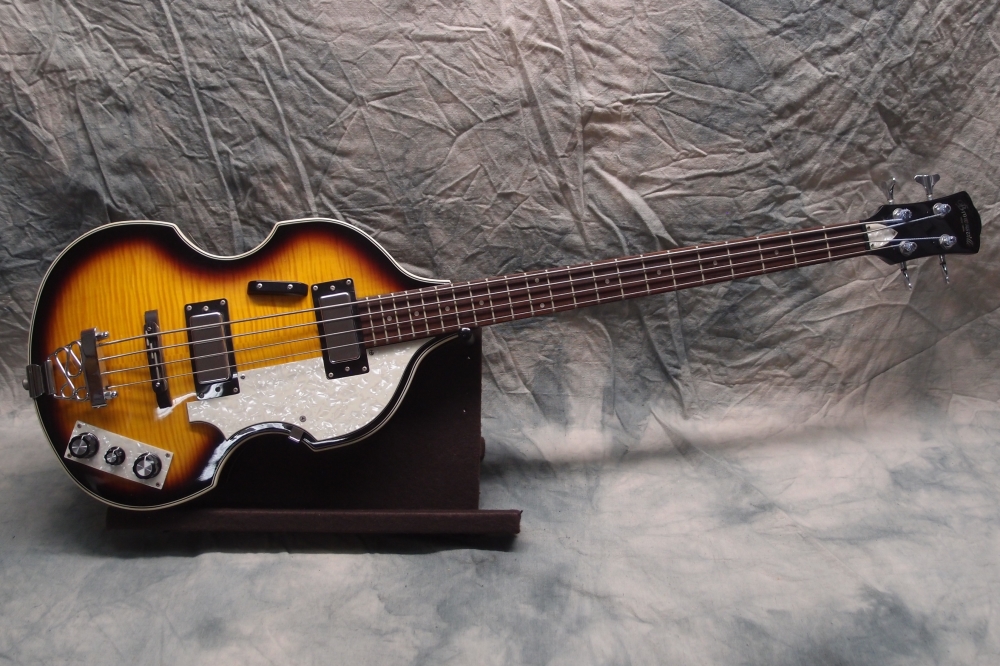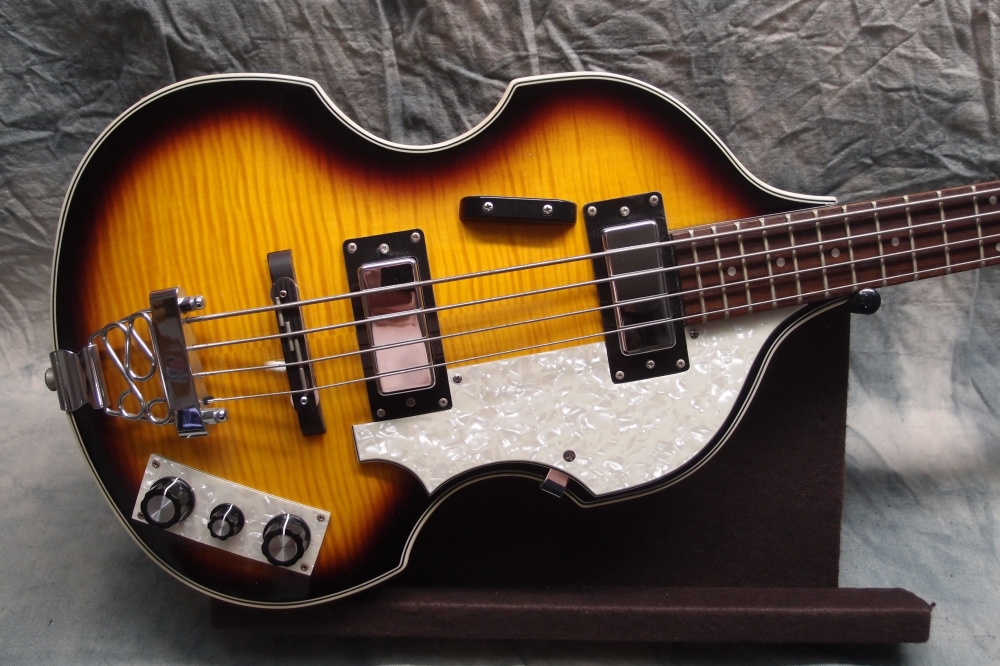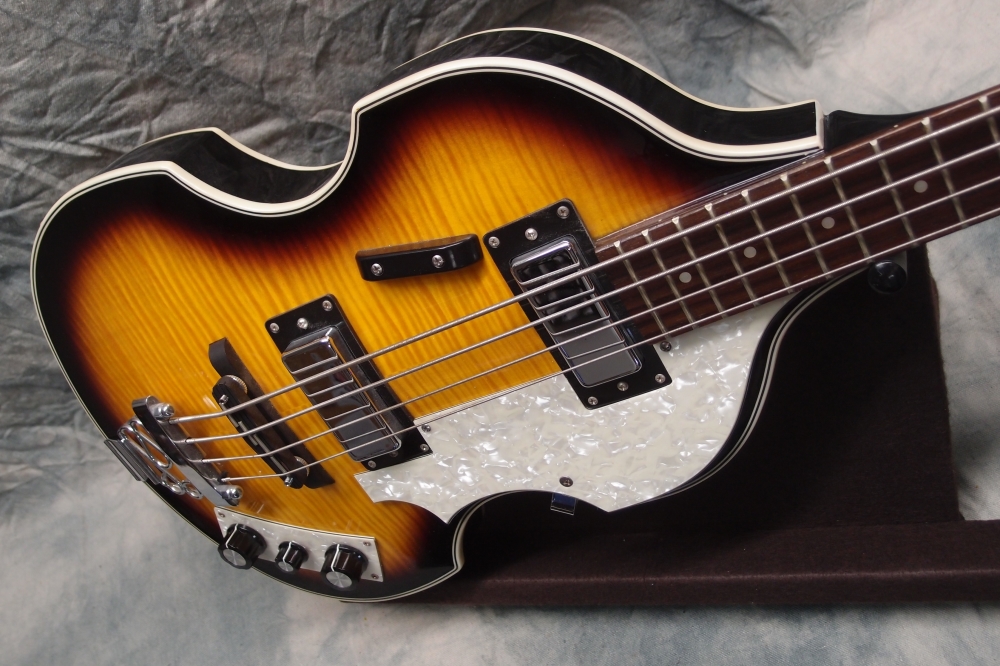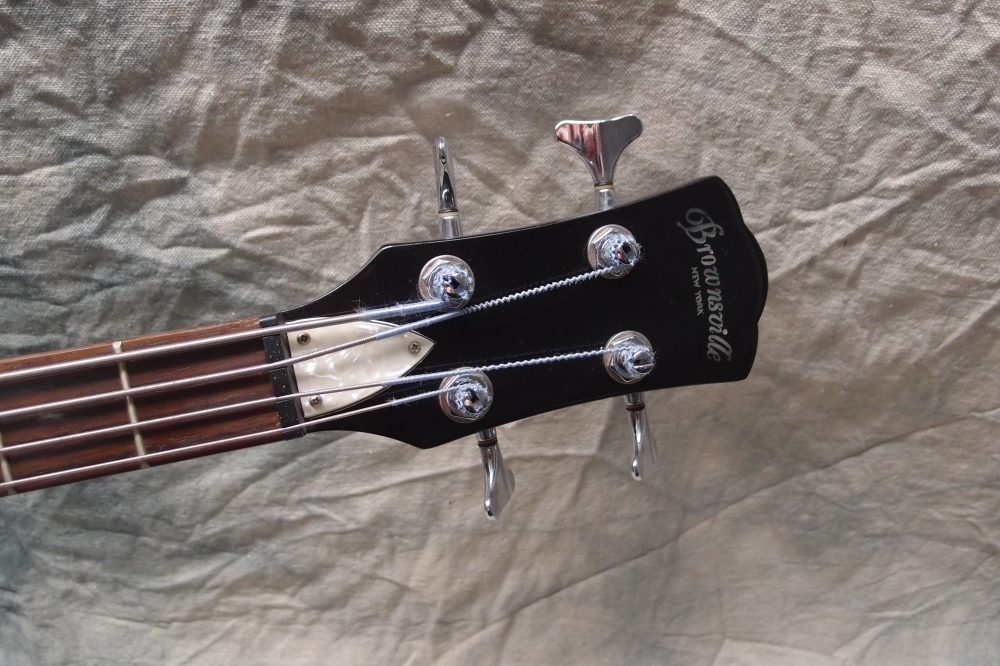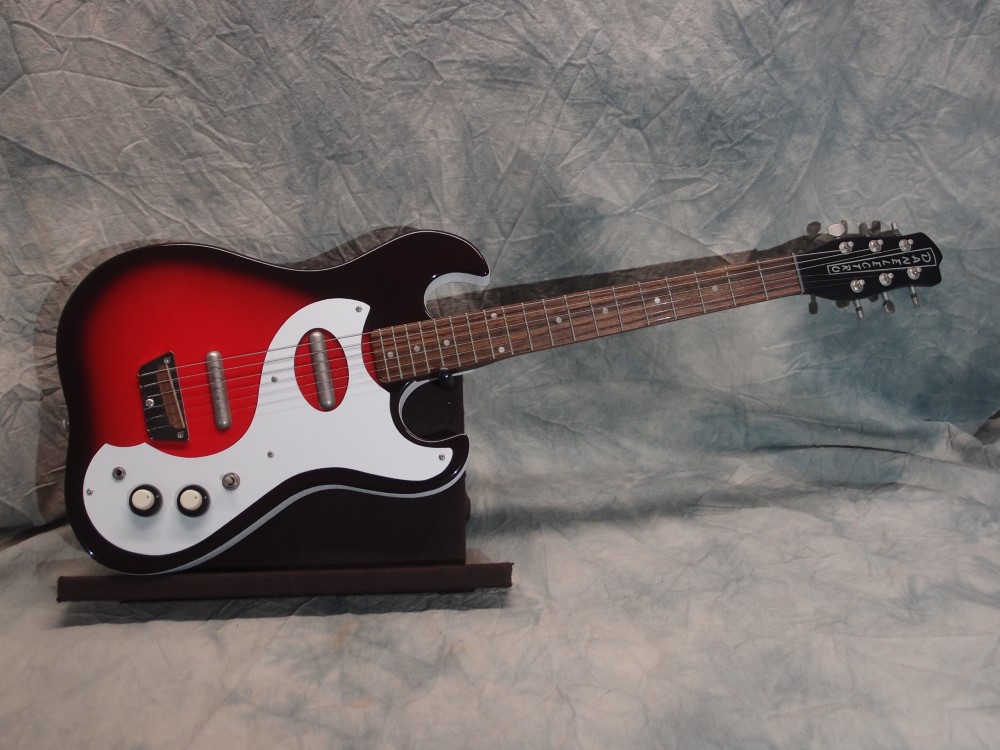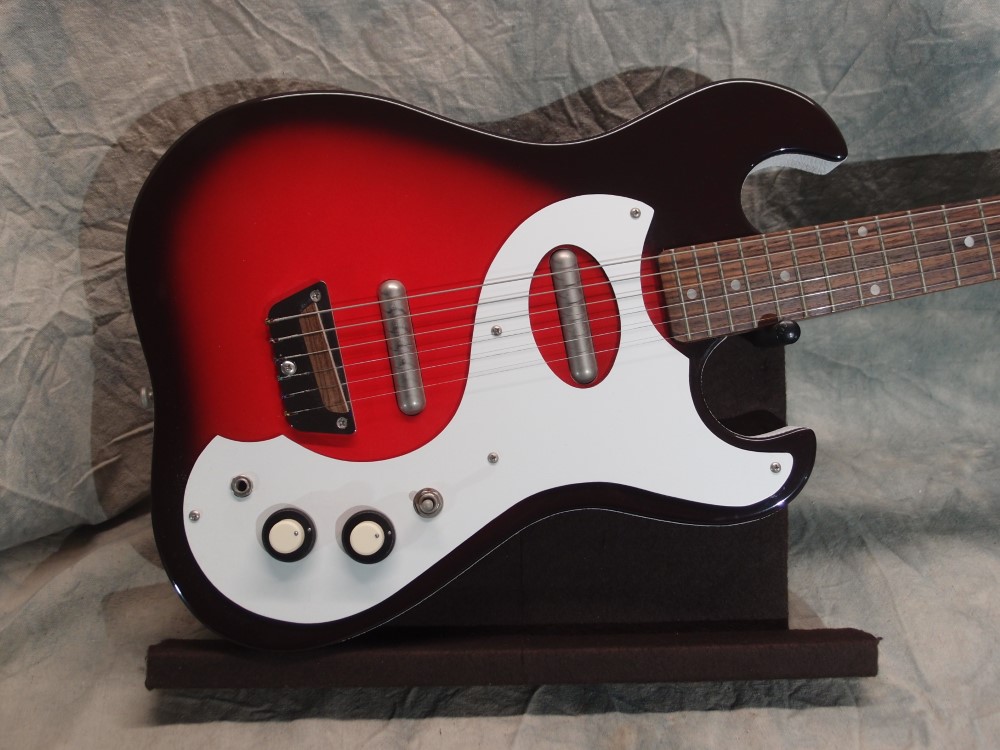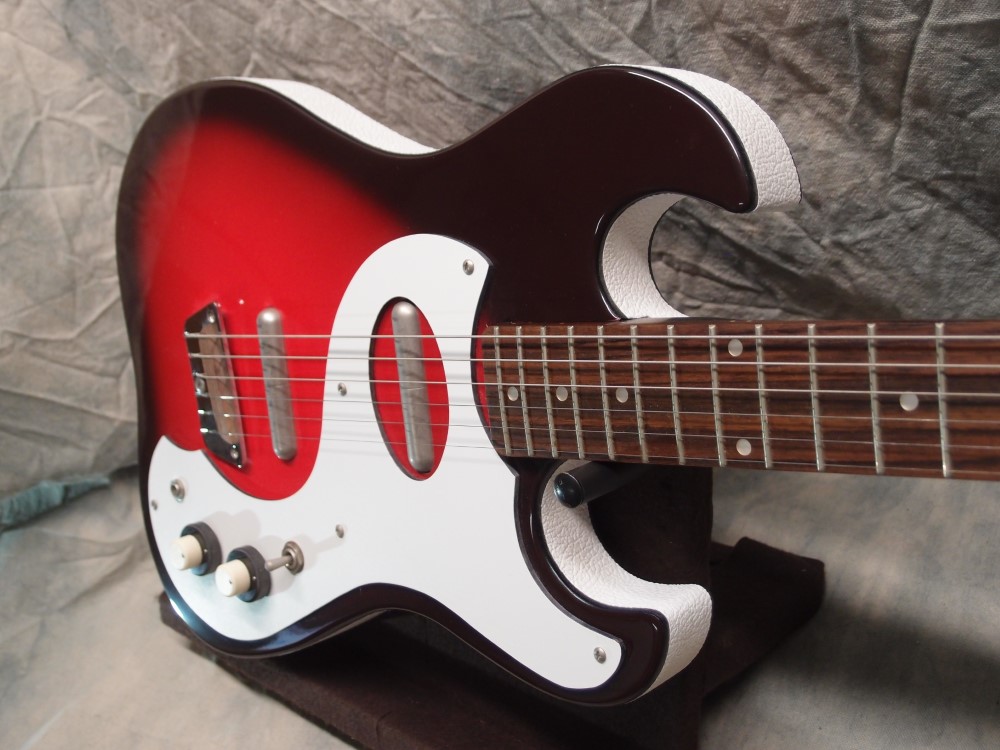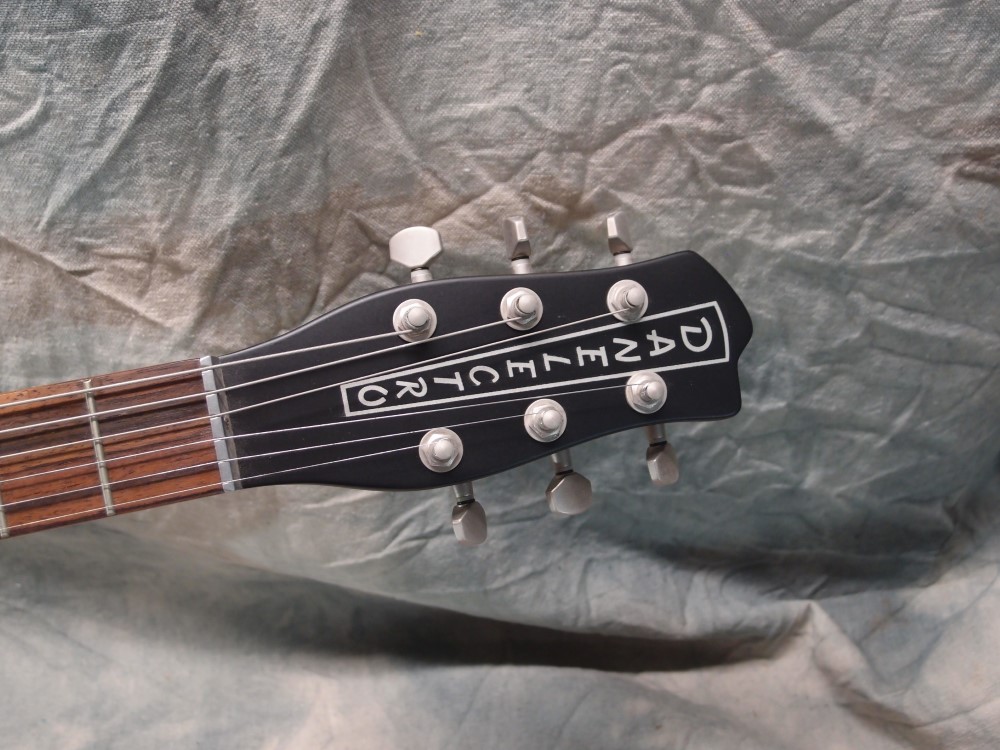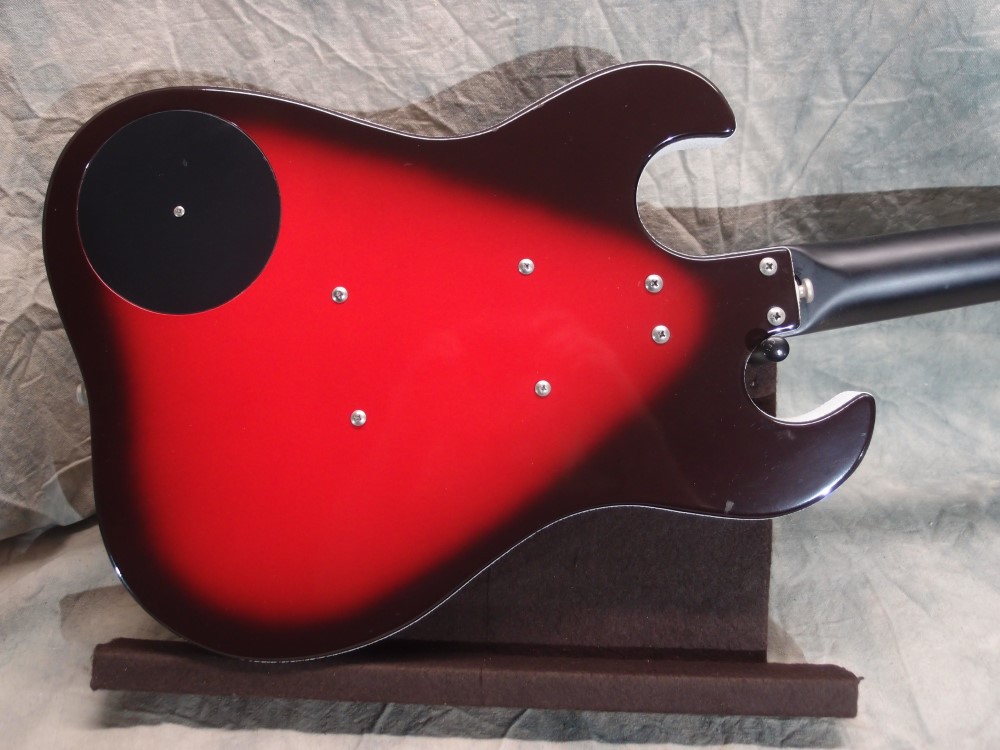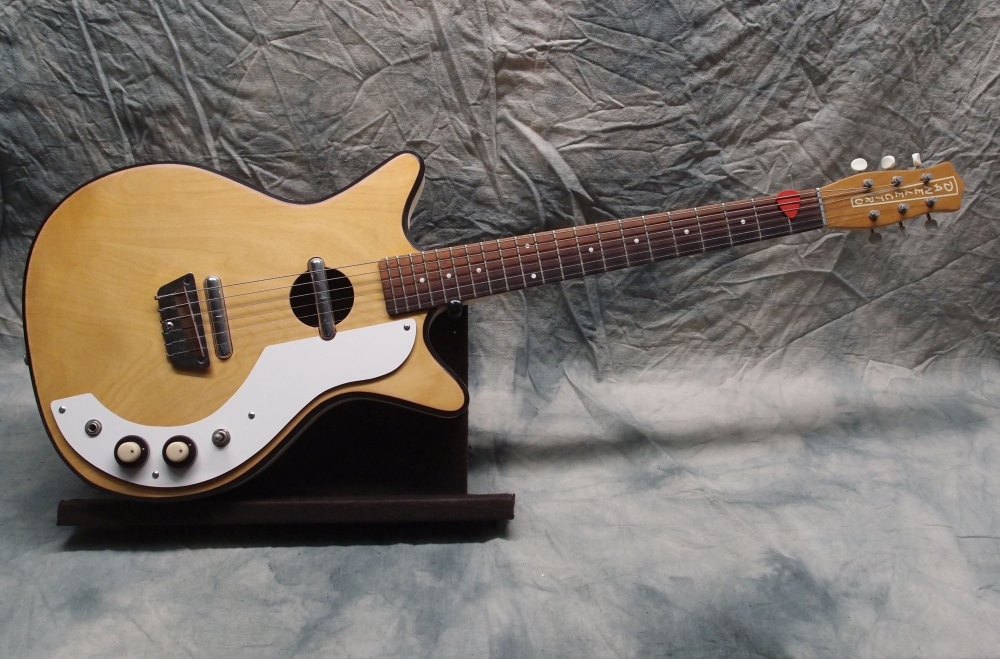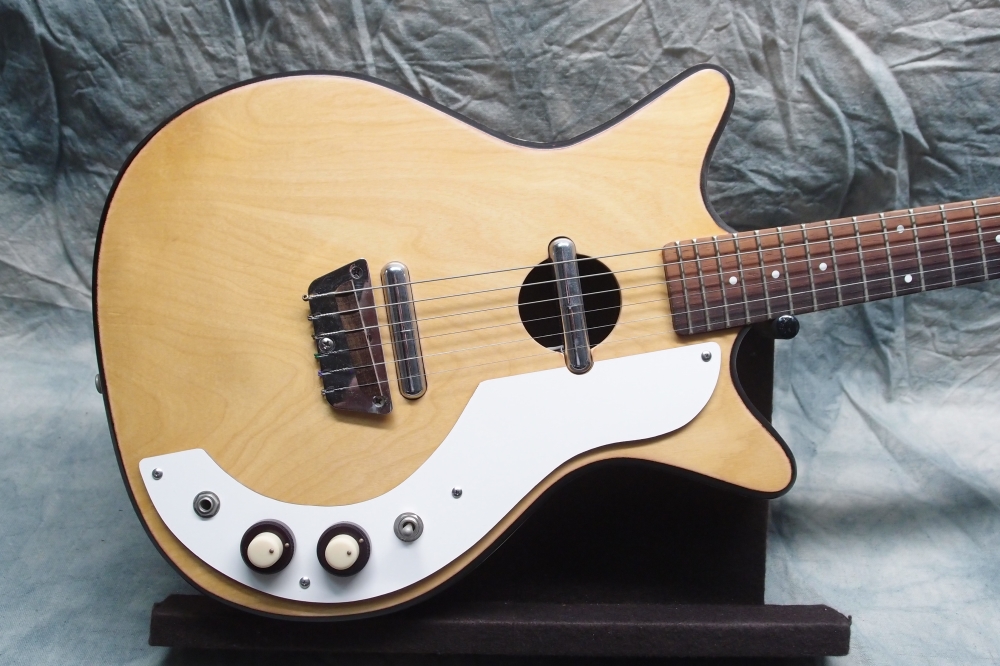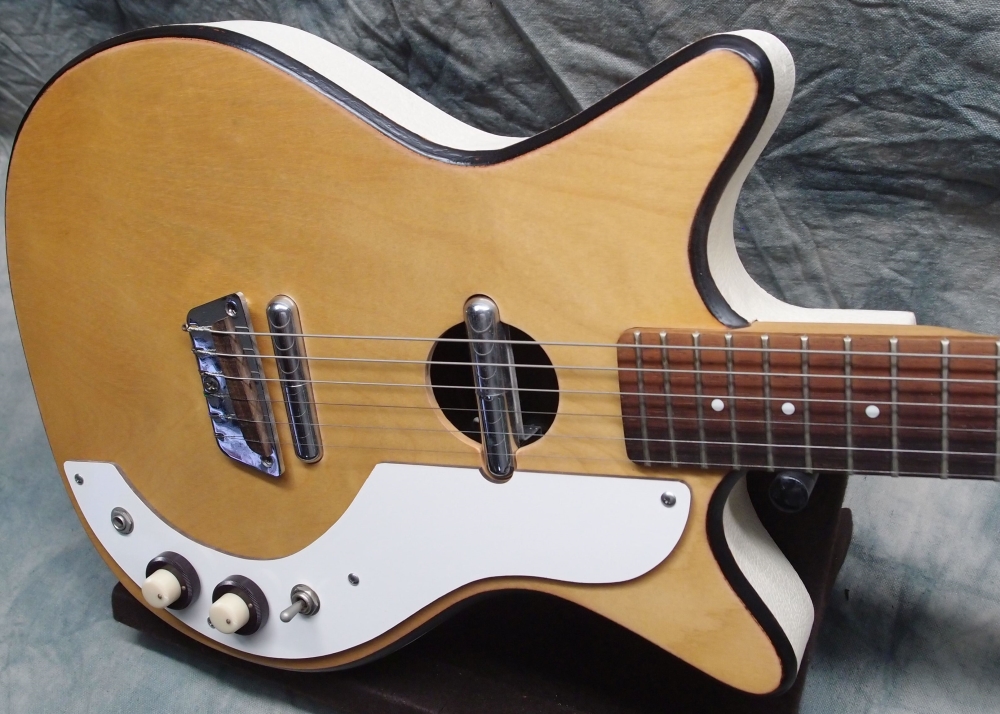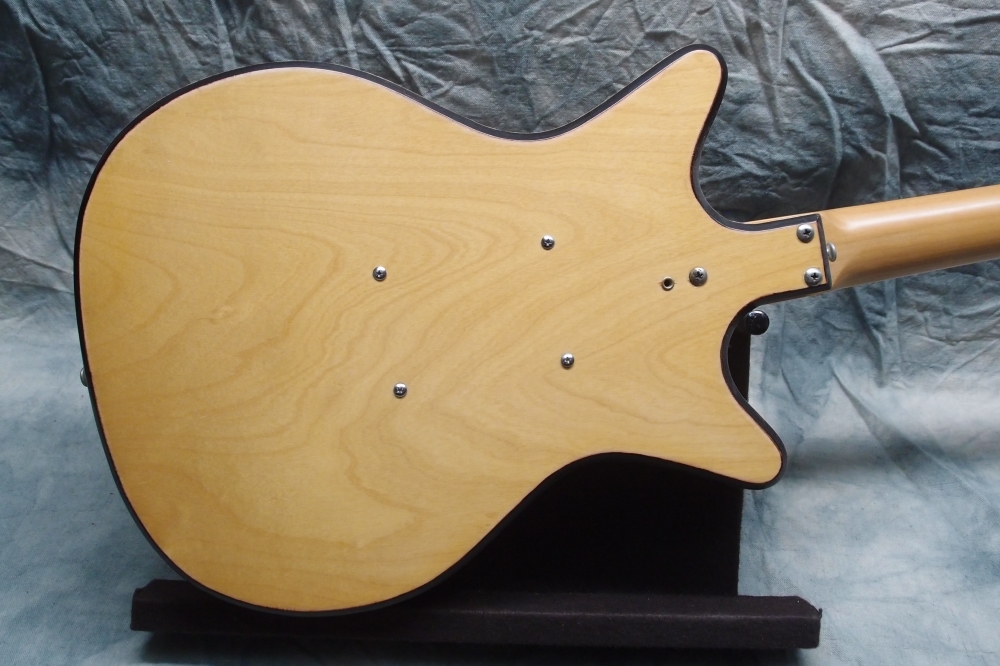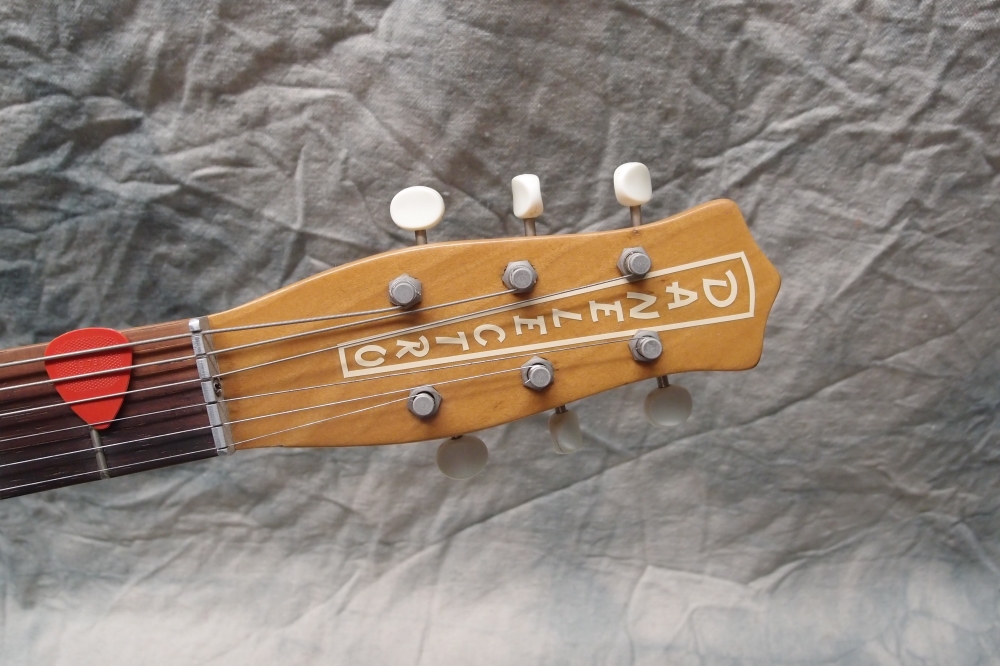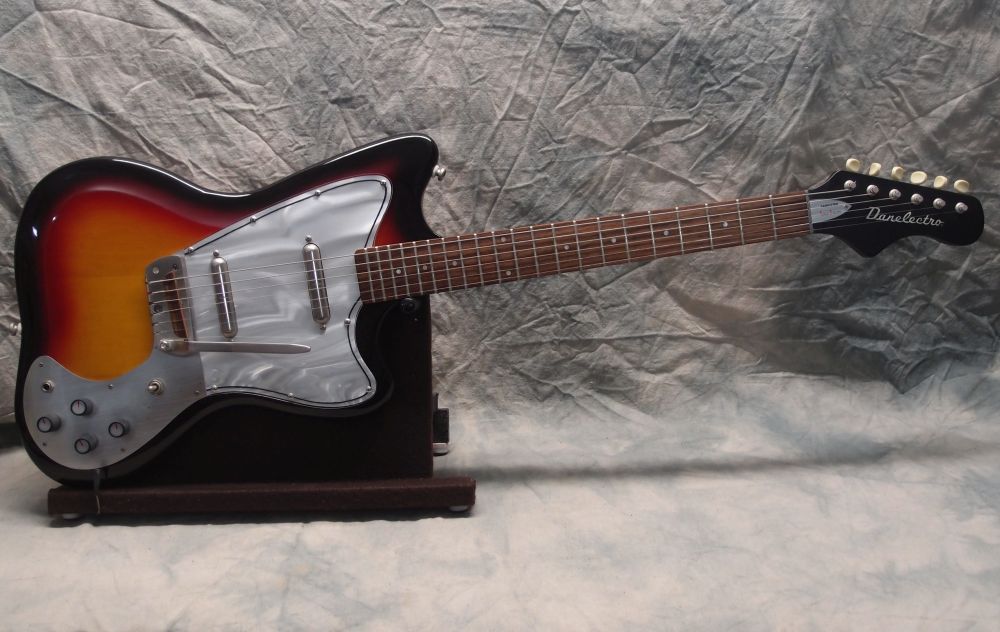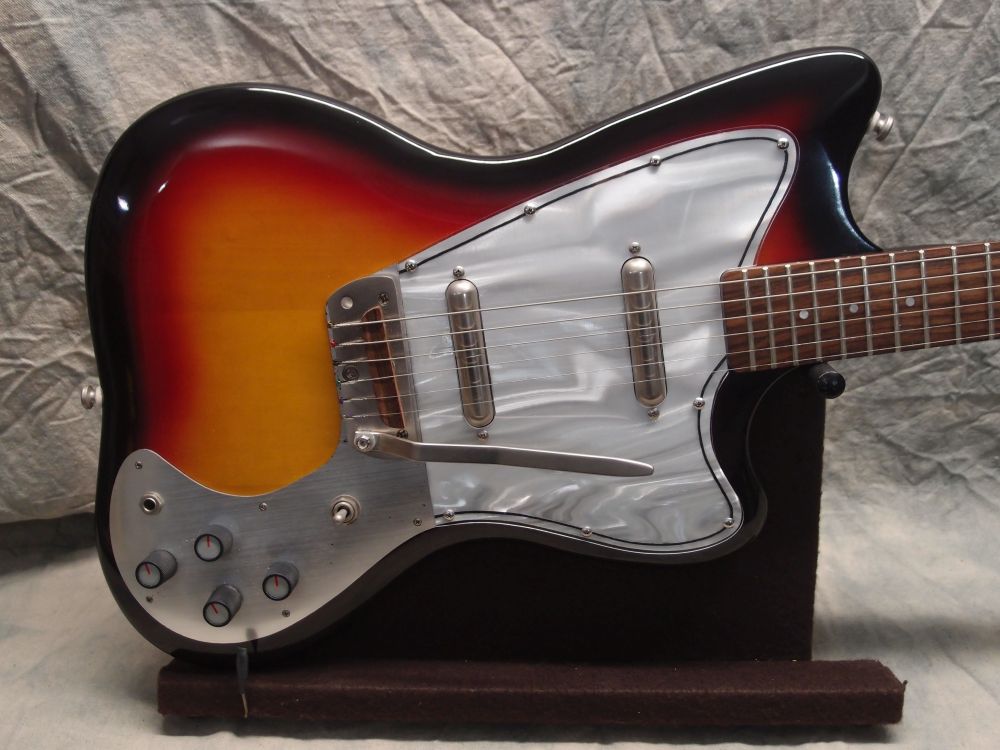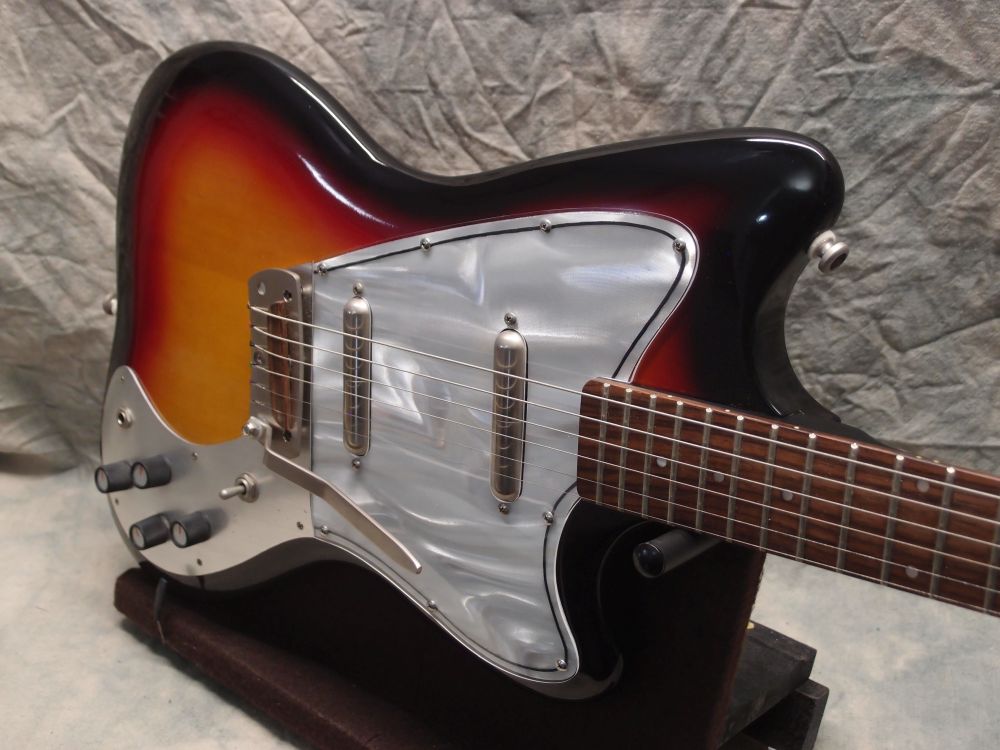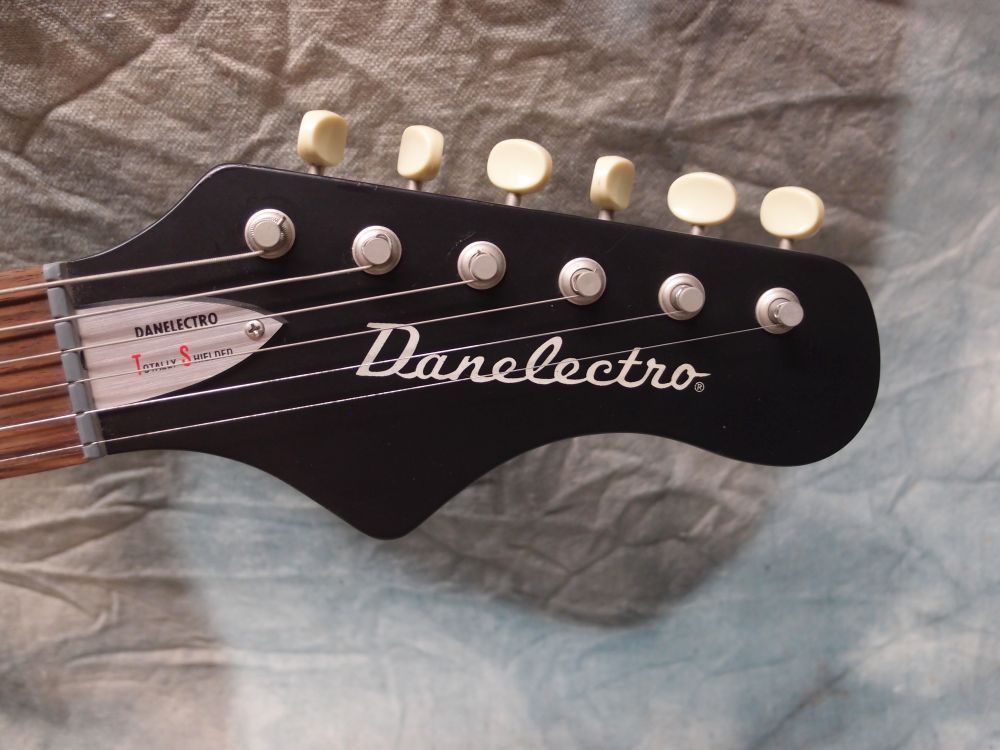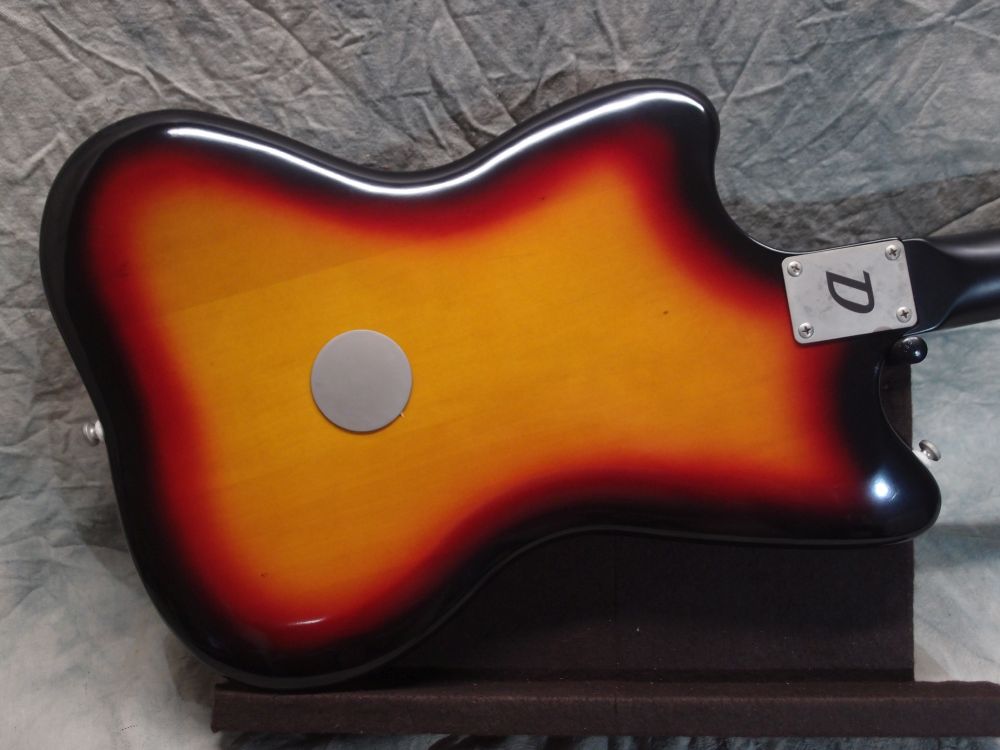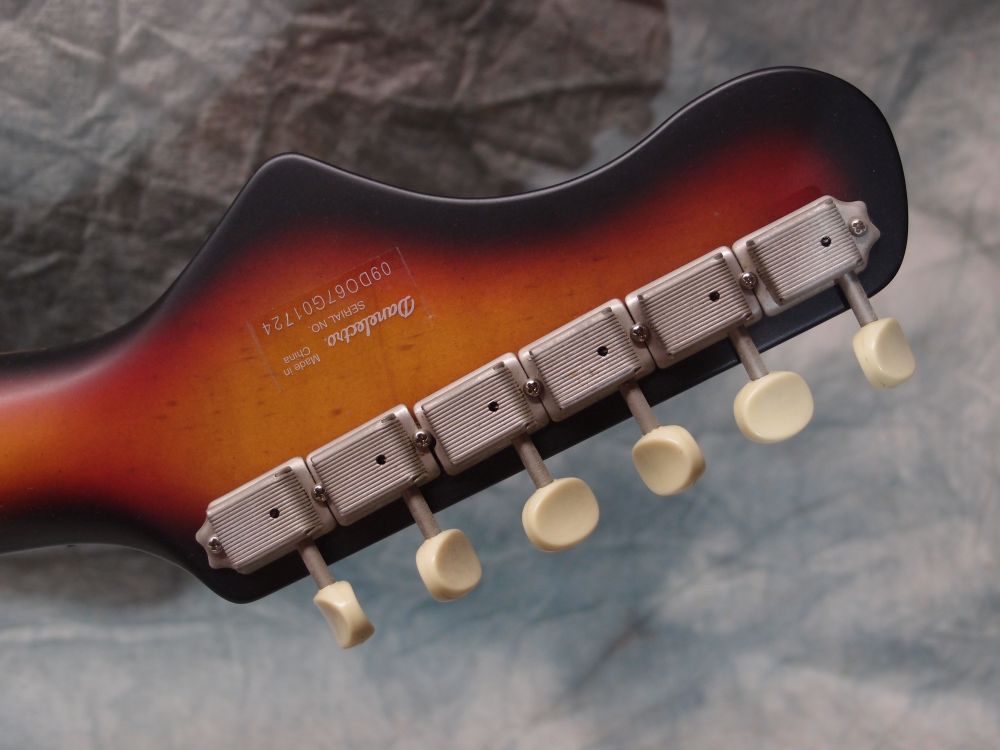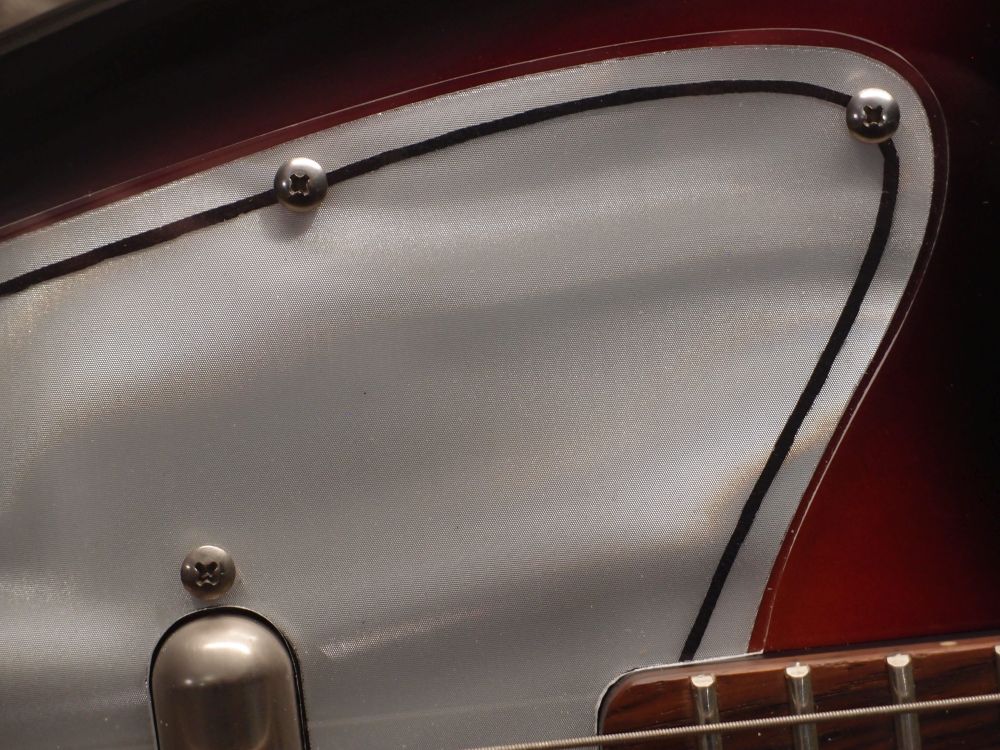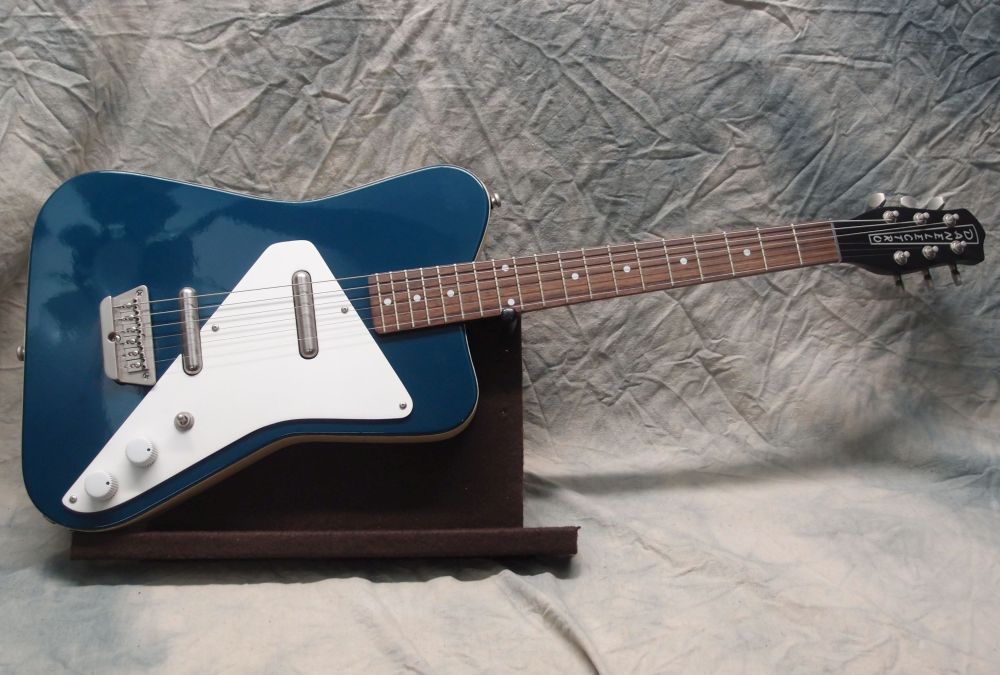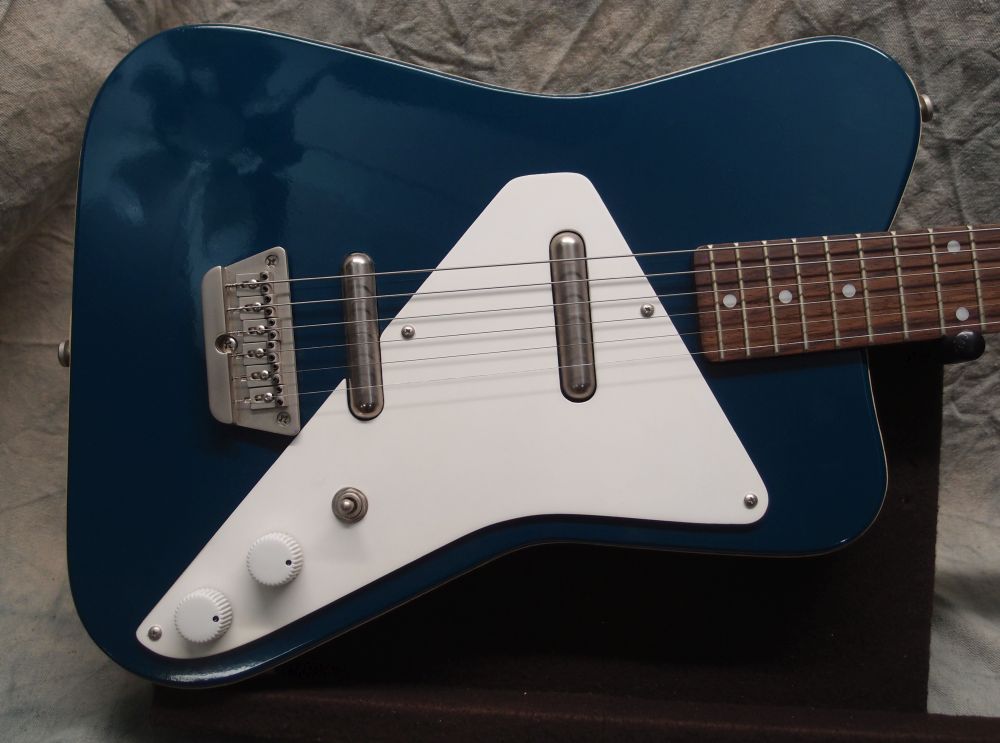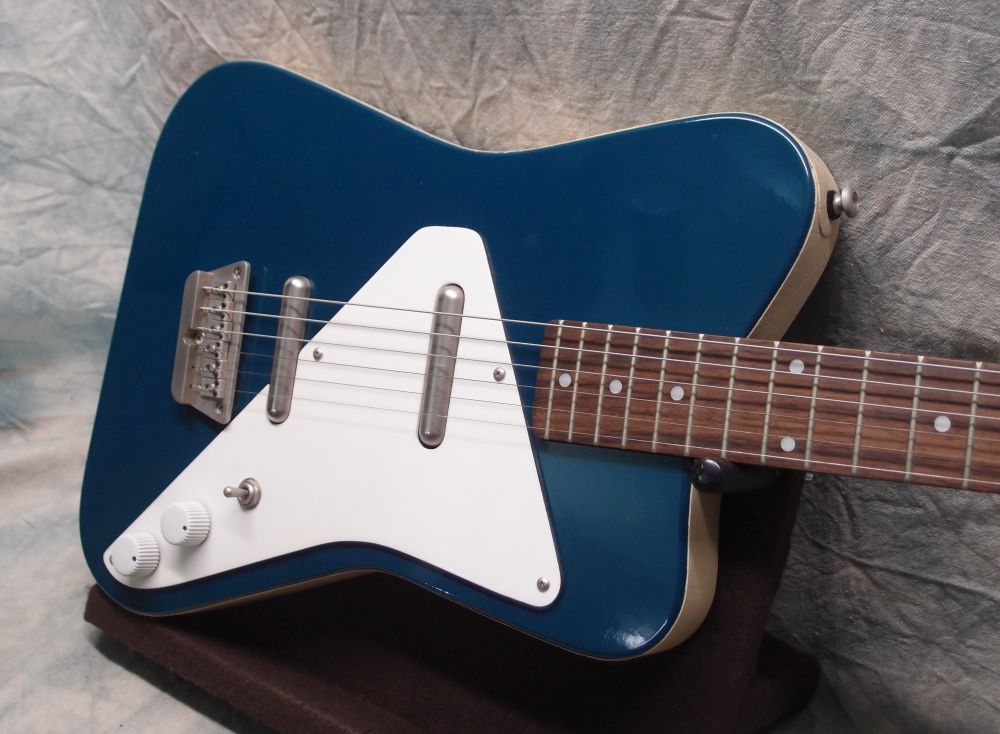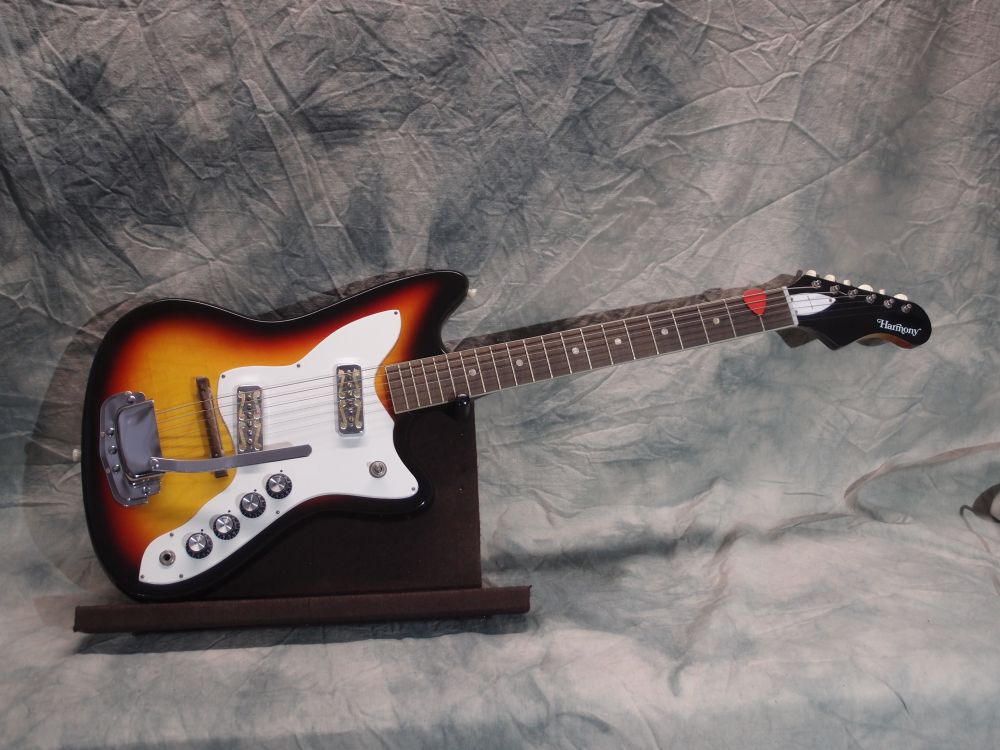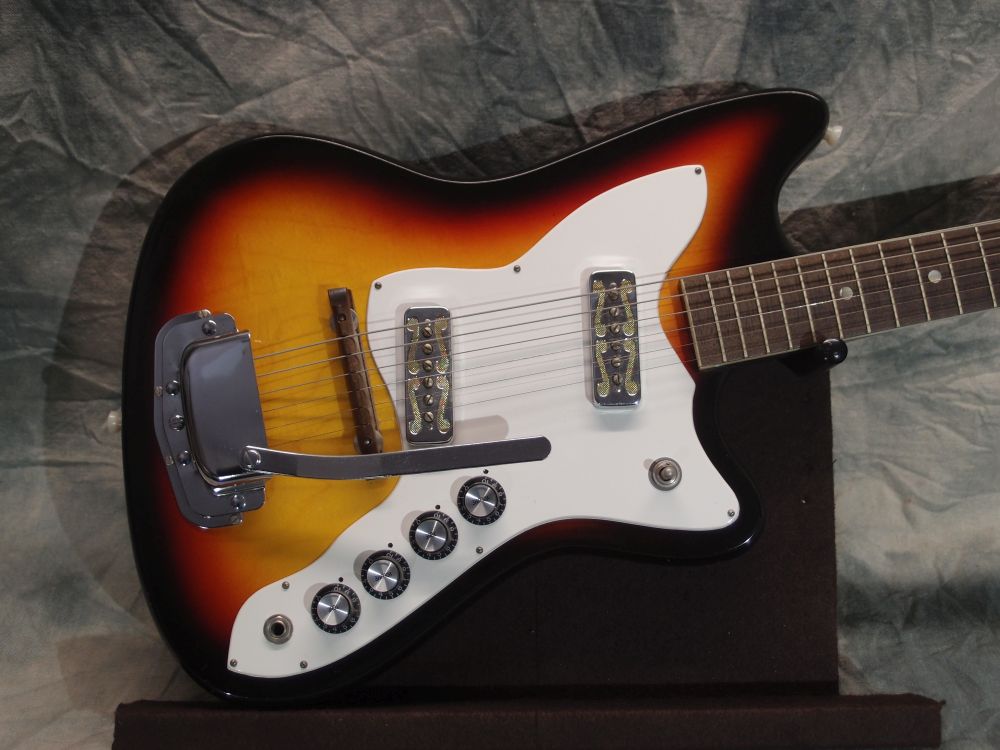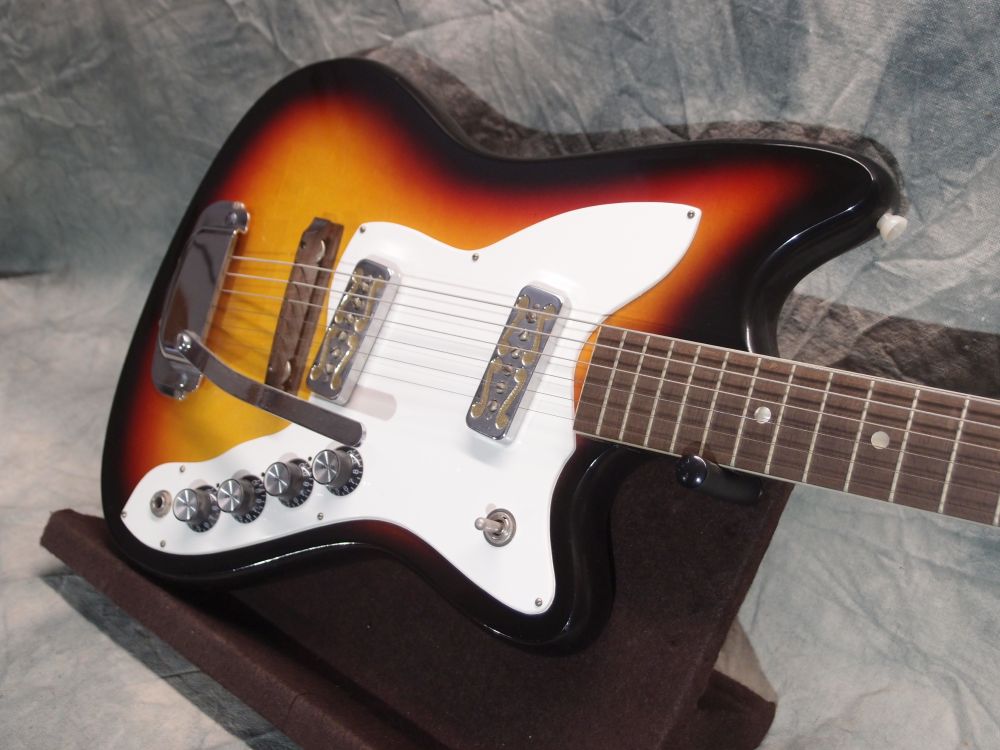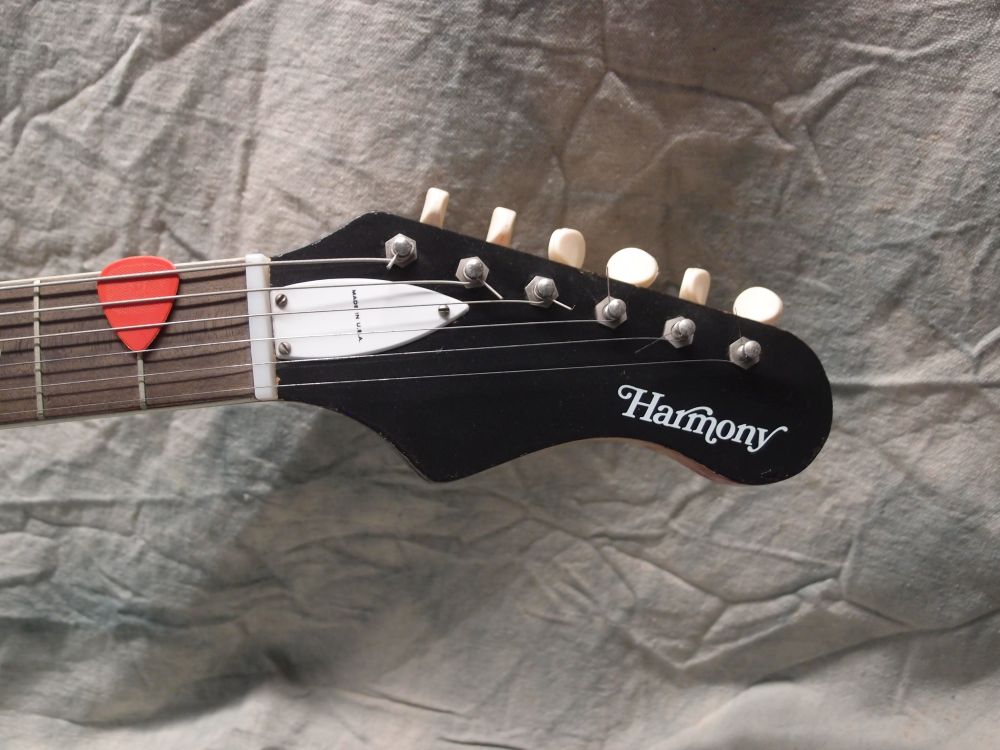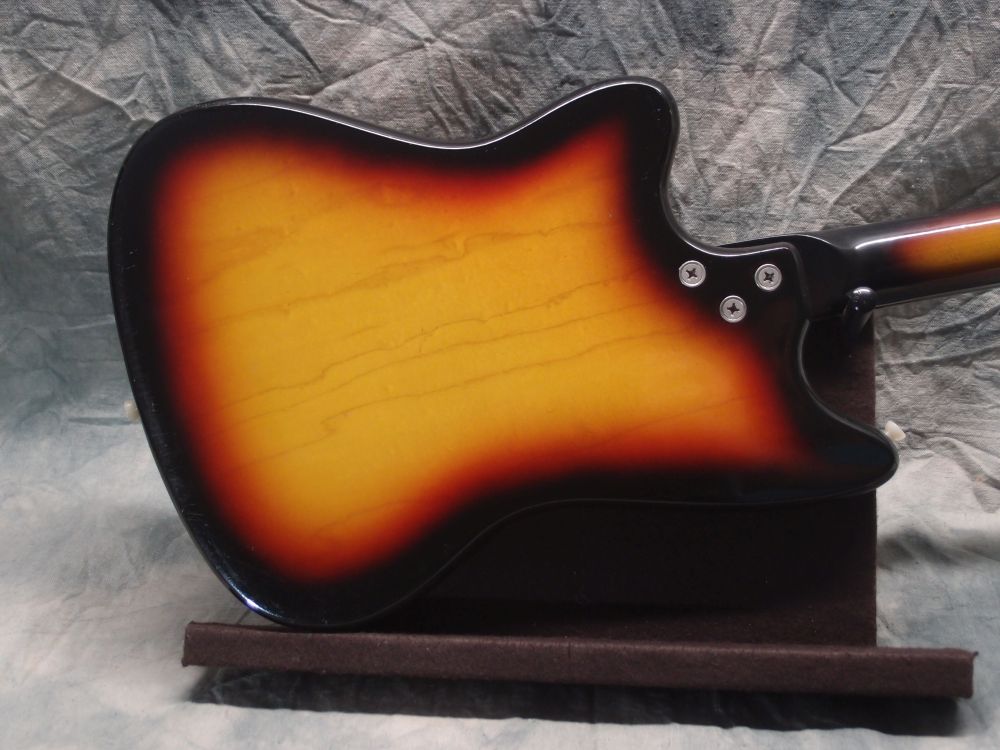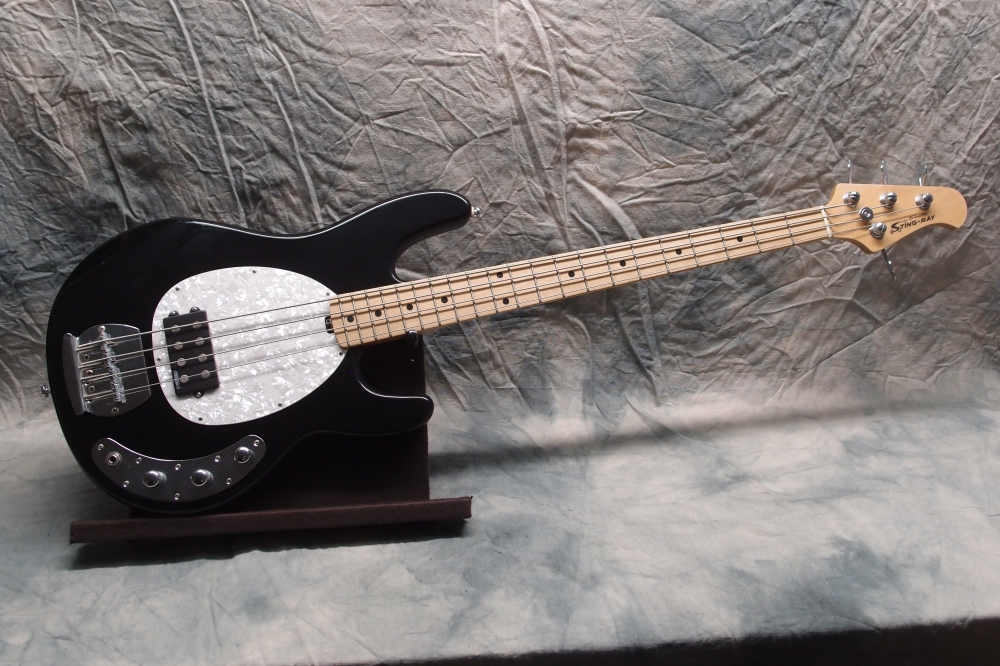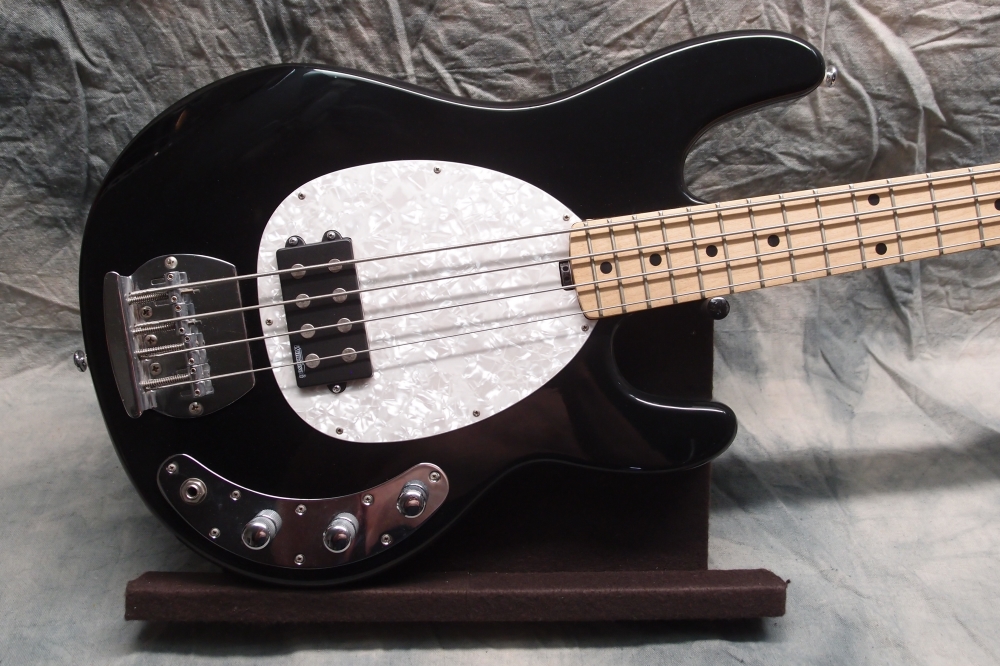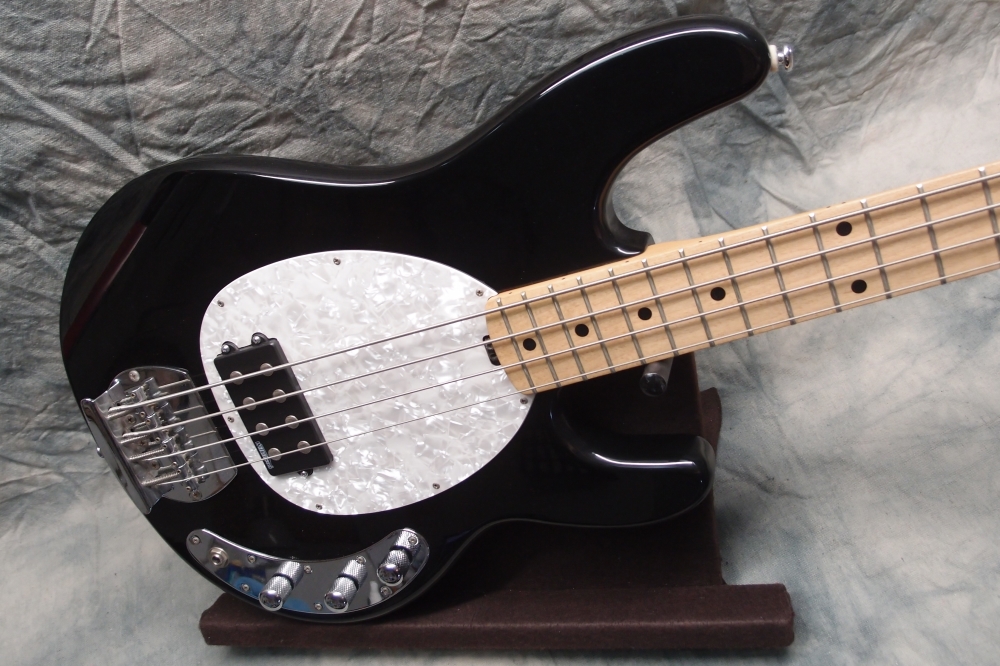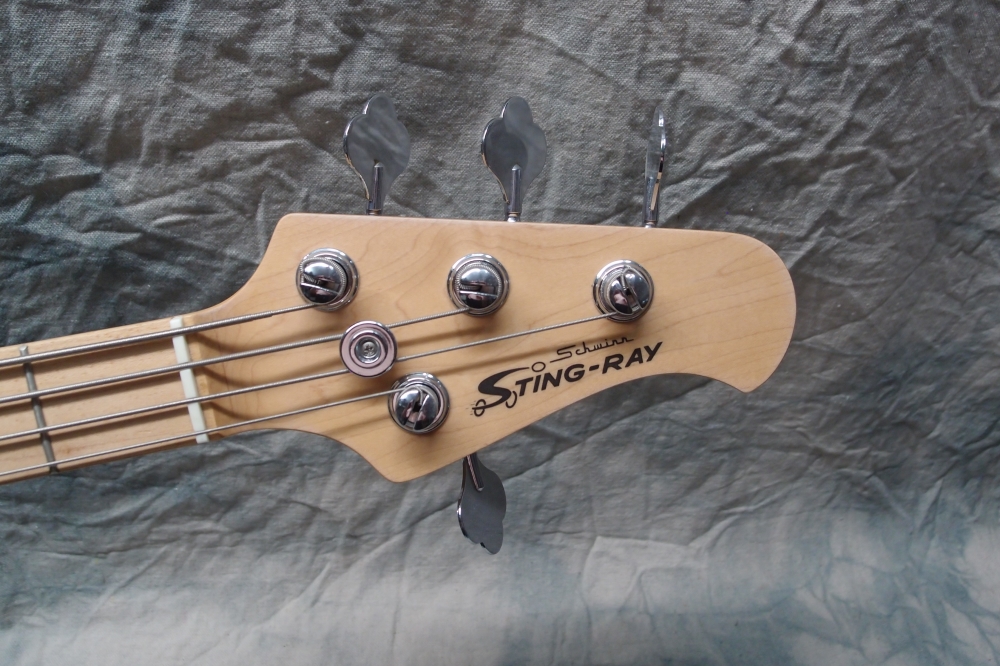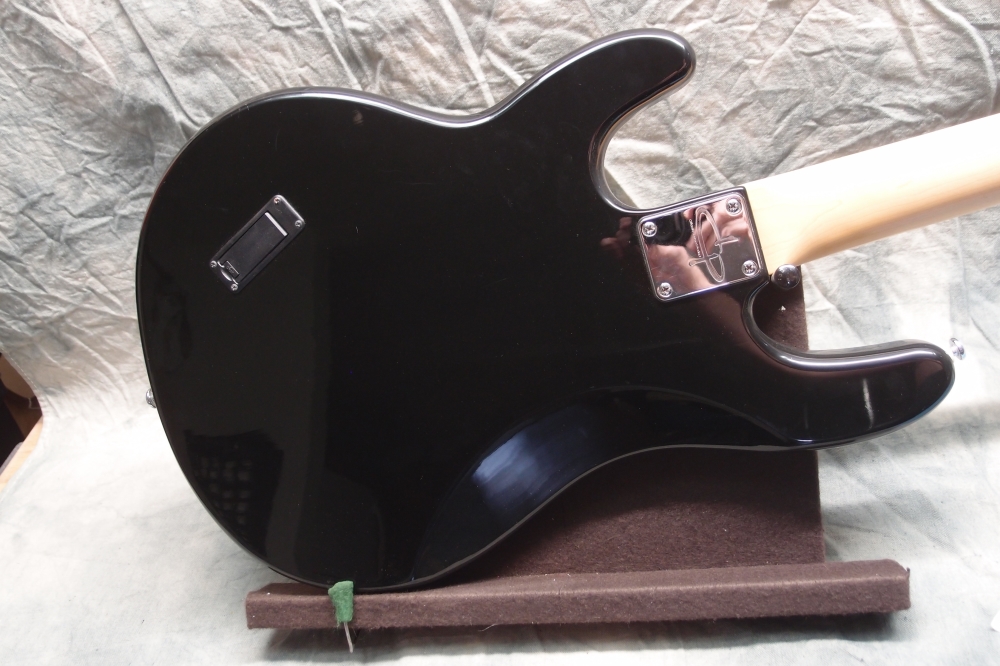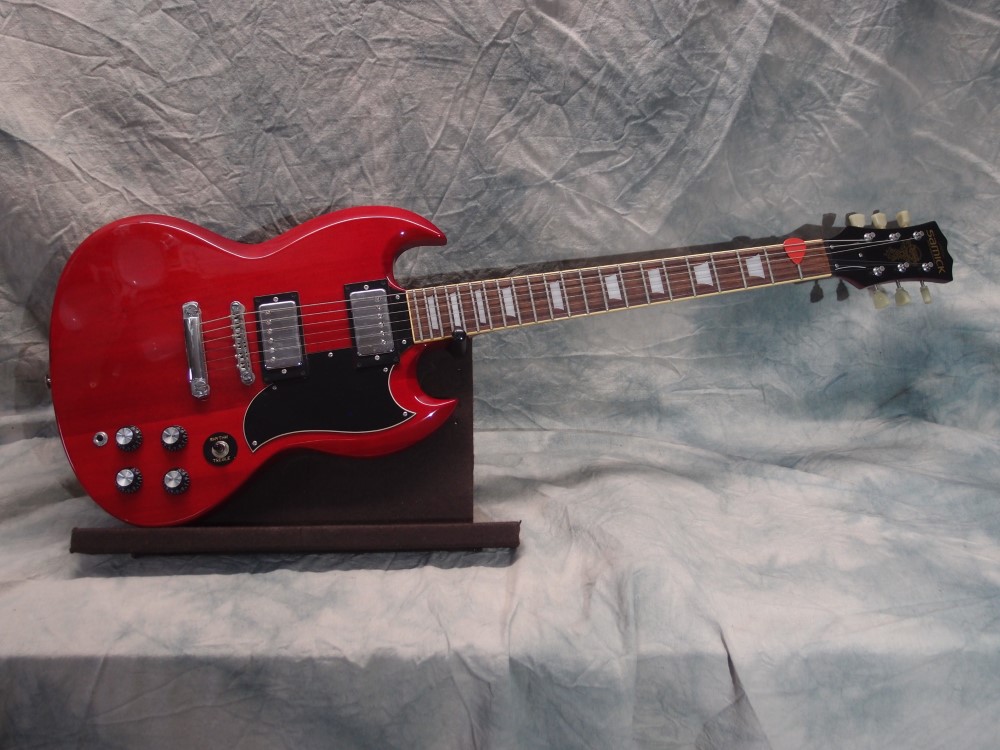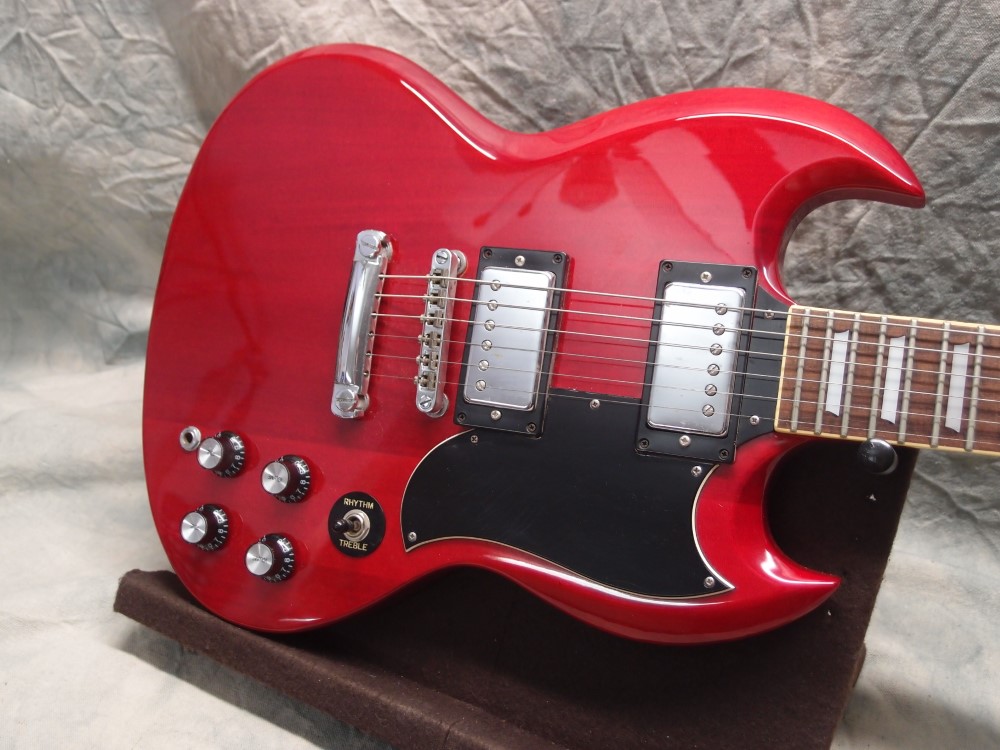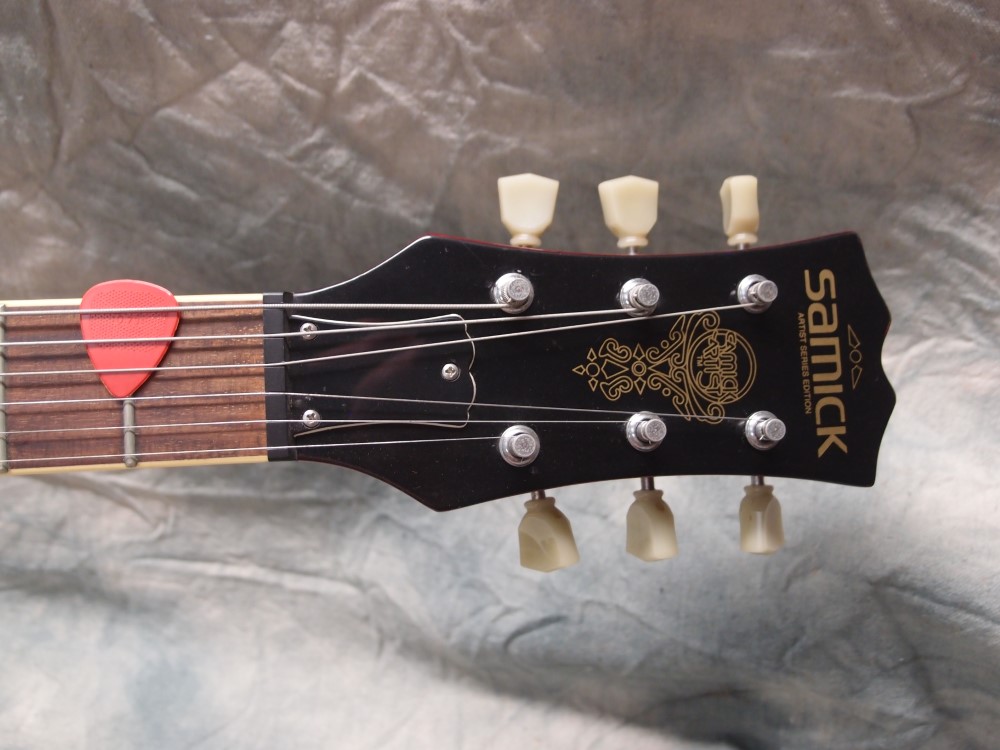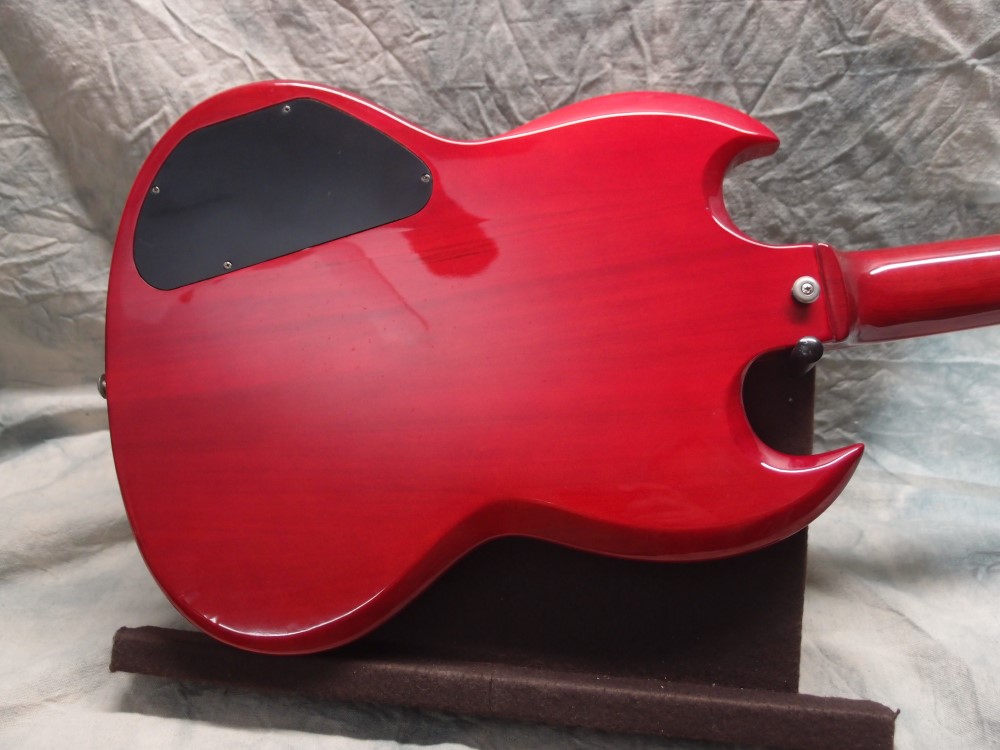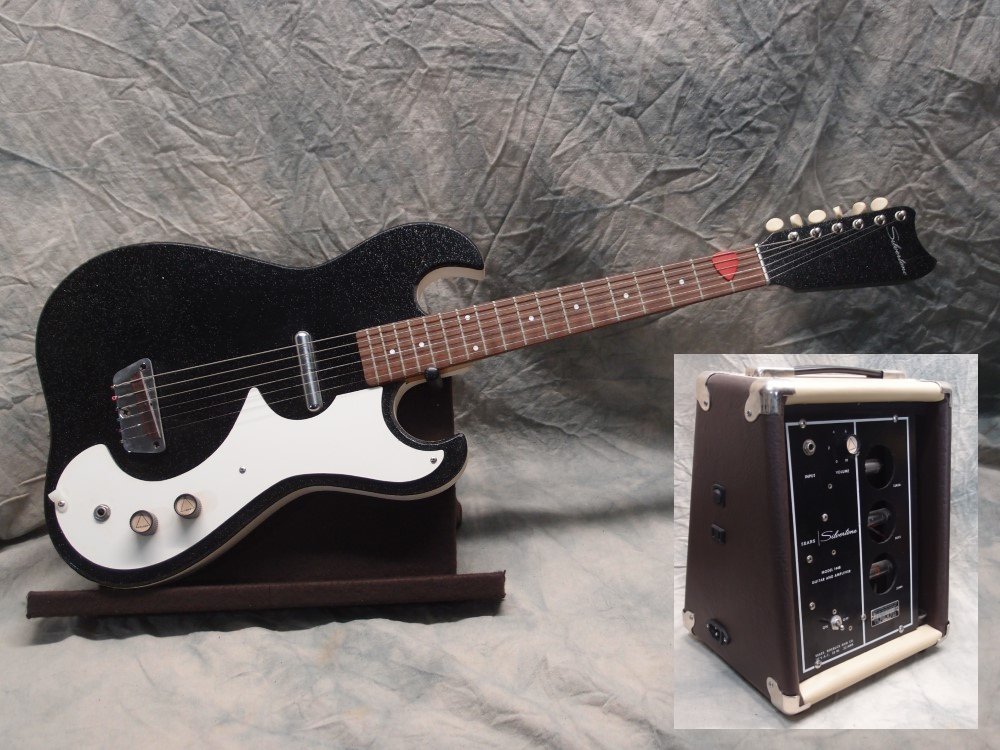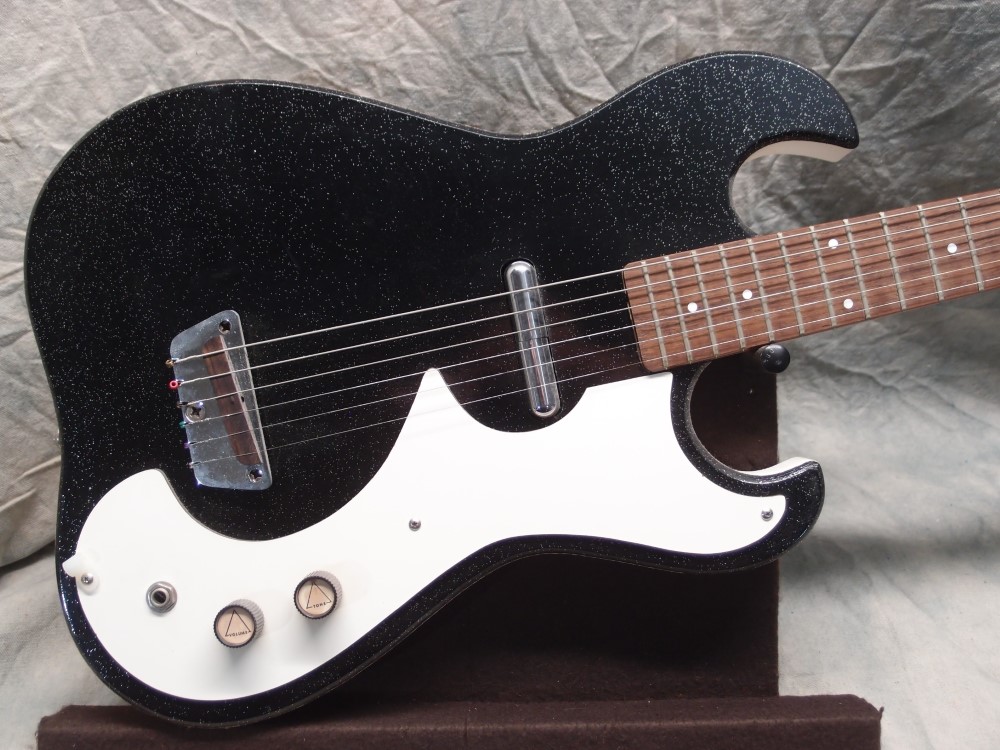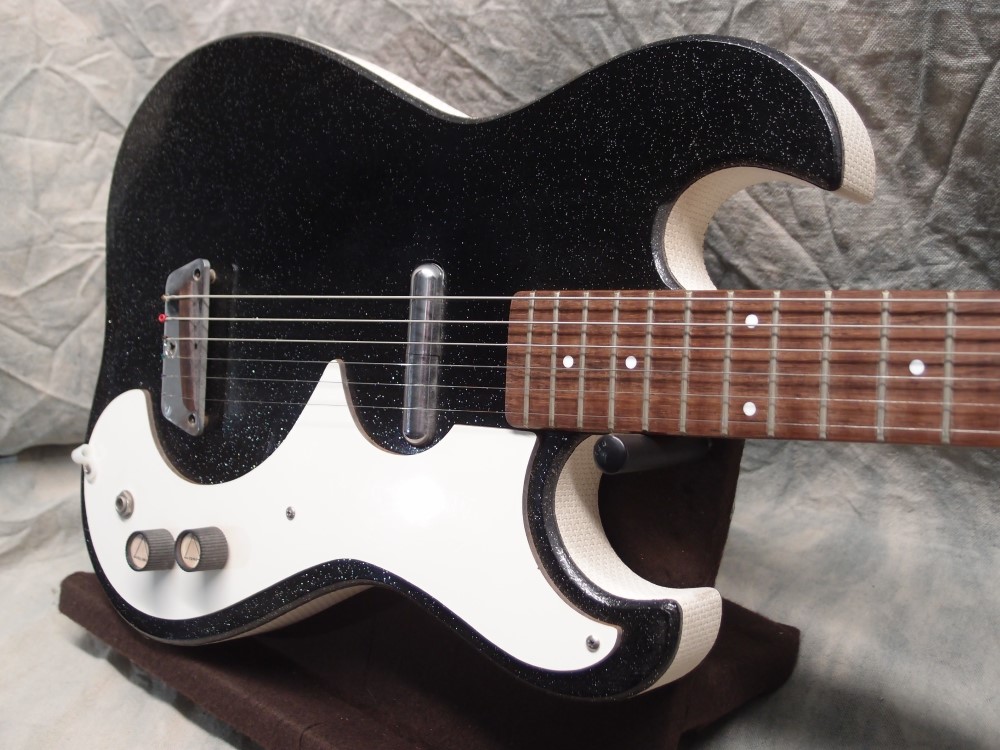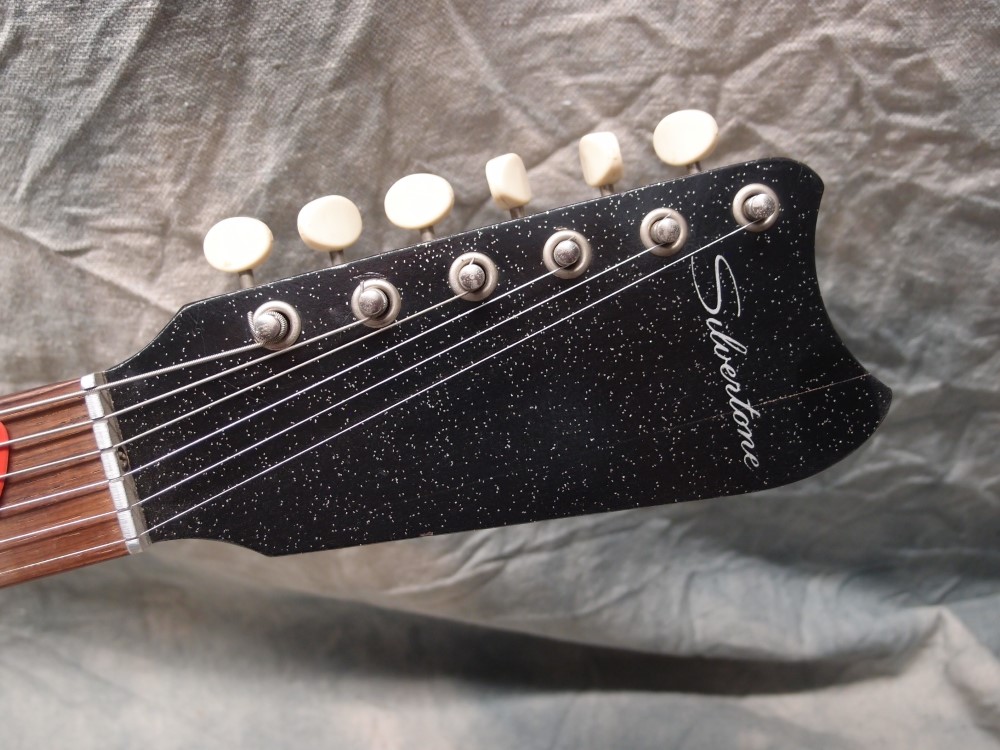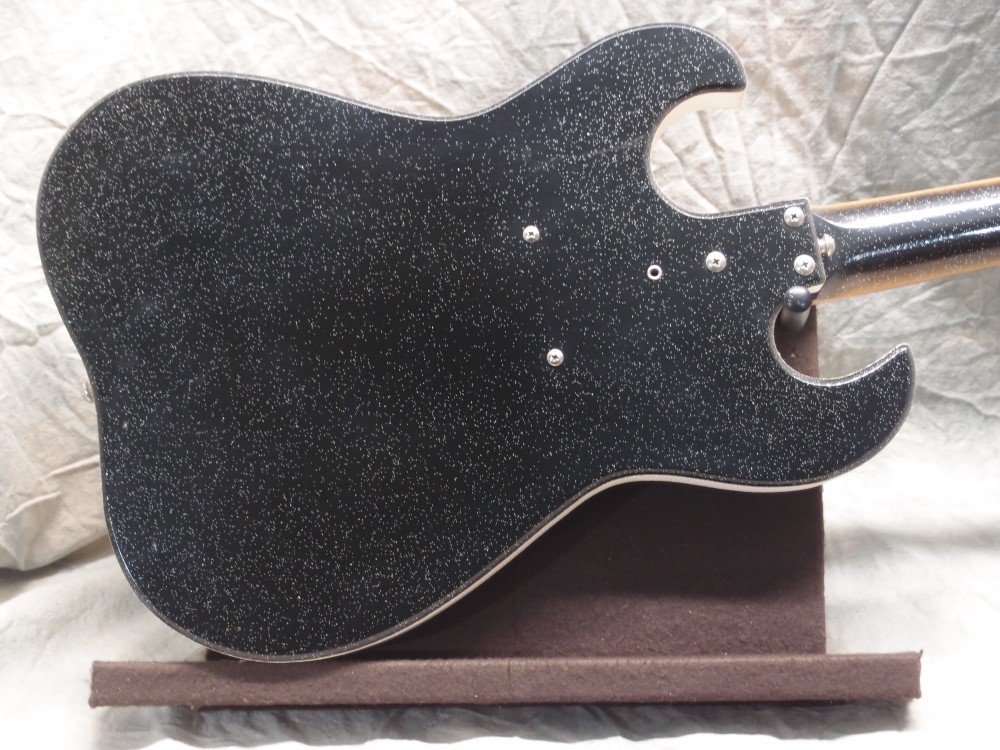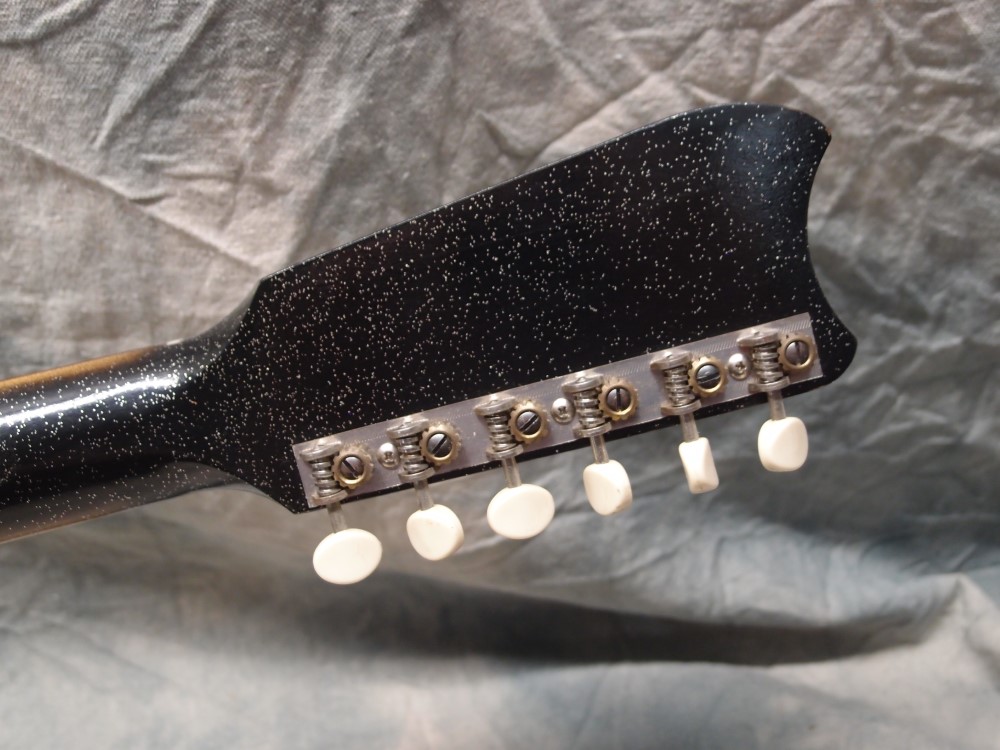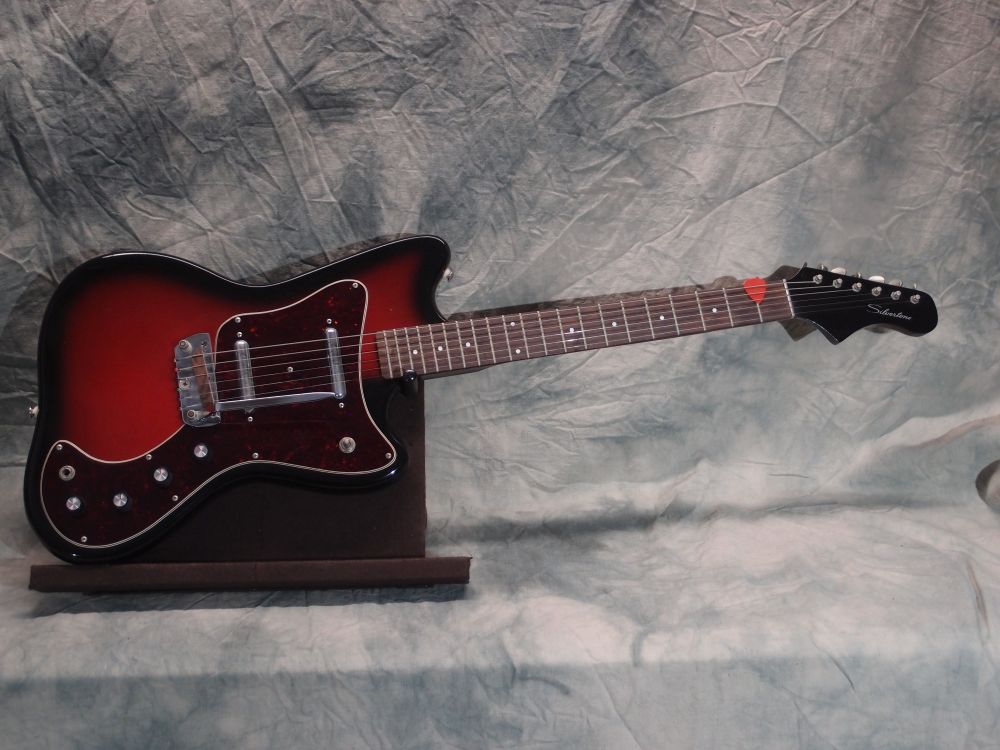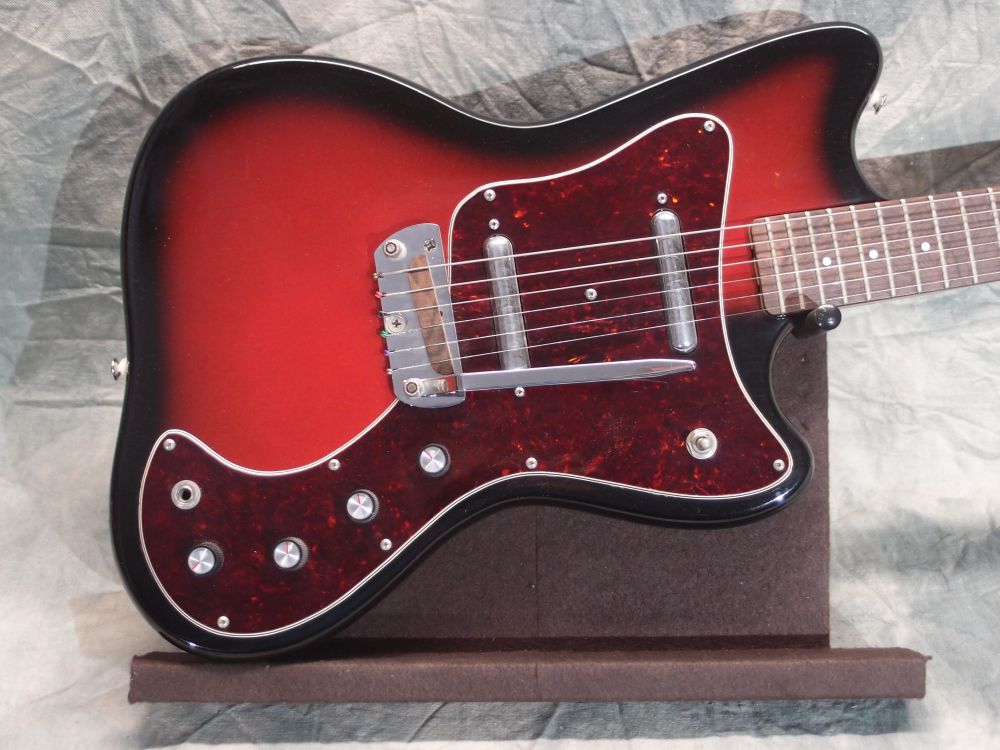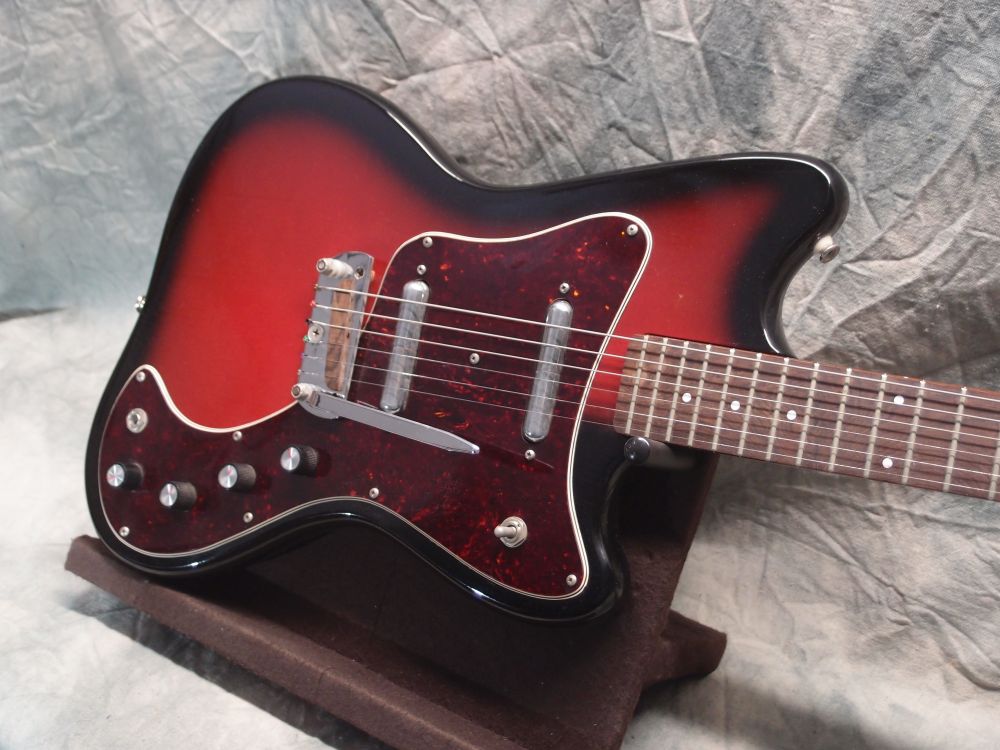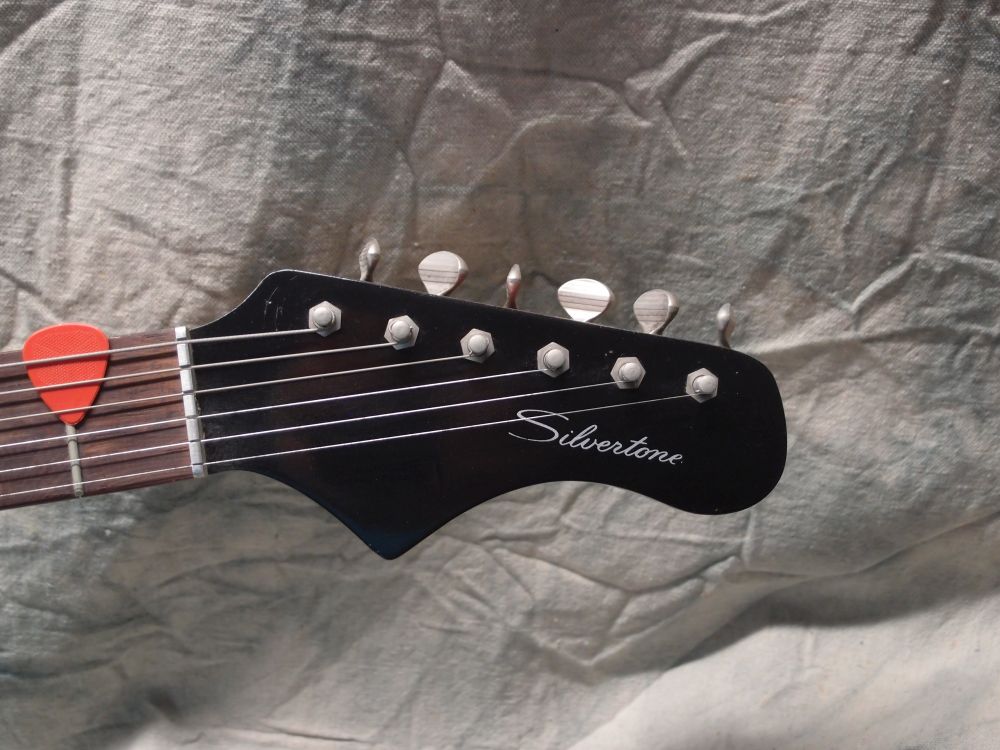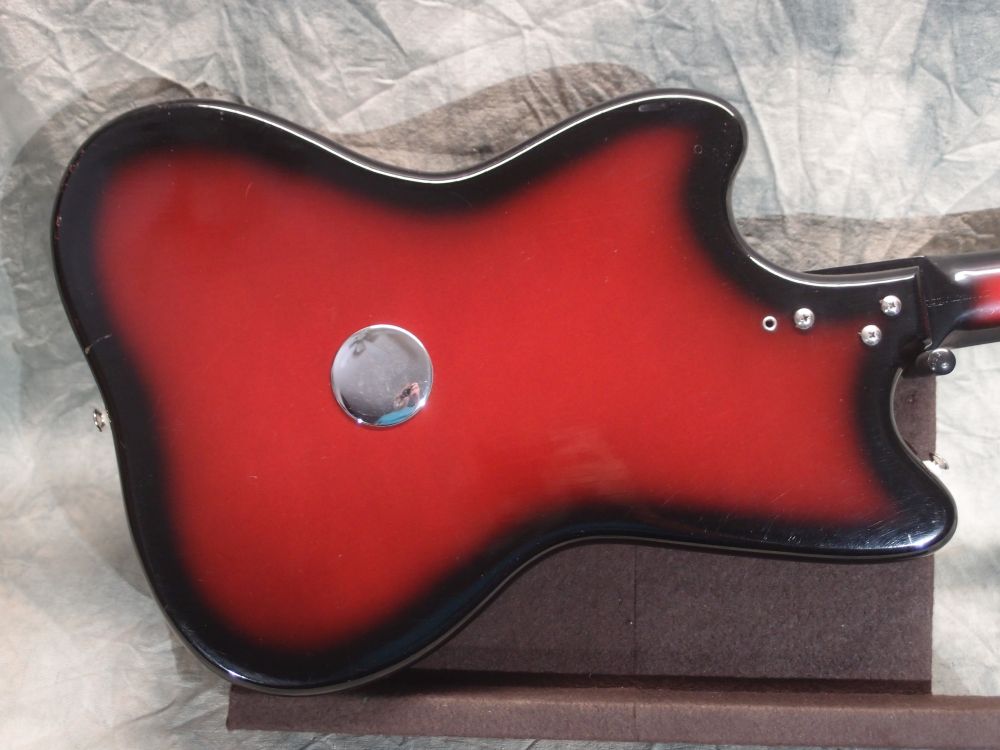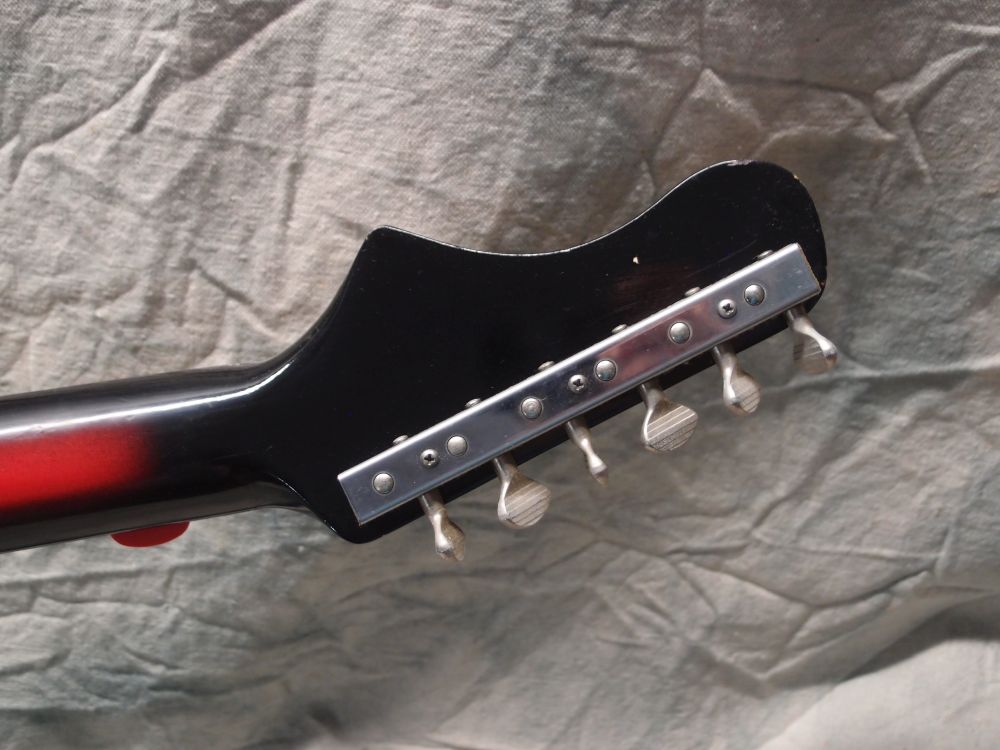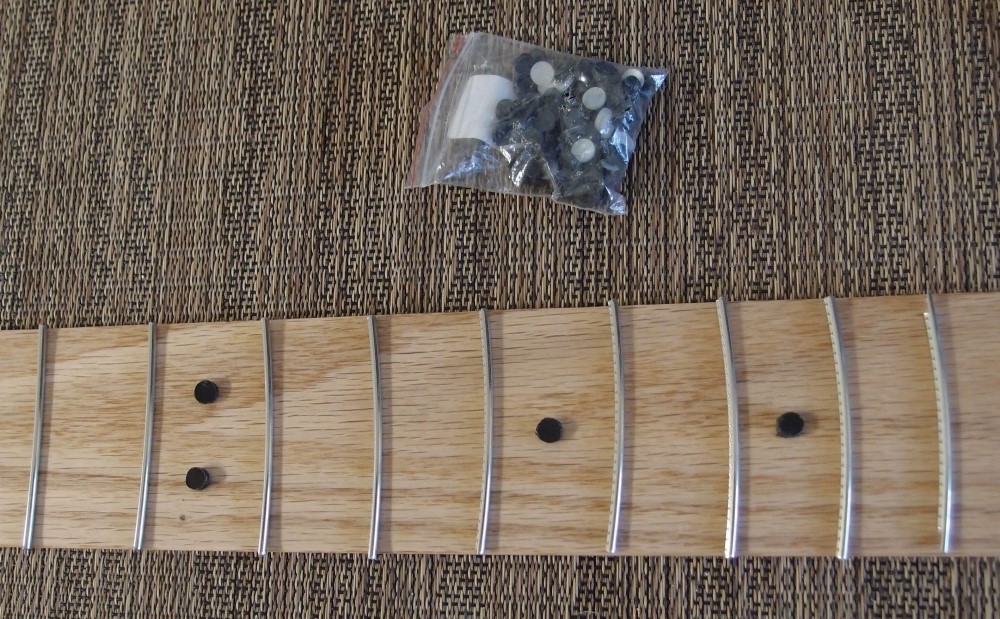Instruments with factory neck and body.
This is probably the cheapest violin bass on earth, and I got a discount on top of that because it had a persistent buzz that turned out to be a bad string. "Brownsville" is a house brand for Sam Ash, where I bought it on a whim. The scale is about 30.5". It's a beauty, isn't it?
More: Brownsville Violin Bass ...
This body style was originally reissued in a range of models - guitar, bass ( long and short scale ) and baritone. I only have the guitar. These were part of Danelectro's Chinese production, and while not bad, are not as nice as the prior or later Korean models. A second reissue in 2015 restored the gloss sparkly finish of the vintage original. None of the reissues use the original headstock shape, though.
More: Danelectro '63 (1457) Guitar ...
This was a box of junk I got on eBay, originally a vintage Convertible. I replaced the front and back with cabinet-grade birch plywood, as the original mother-of-countertop material is no longer available. I rebuilt it as something like a Companion, which is a very rare model. The neck and sides are vintage, the rest is modern.
More: Danelectro Companion Guitar ...
This beauty is Evets' reissue of a 1960s Danelectro Hornet. The solid-body Hornet has the same body outline as the Silvertone 1452, a sort-of cross between a 1457 and a Fender Jazzmaster. But unlike the slab-sided 1452, the body of the Hornet is a continuous curve, front and back, with a completely rounded edge. ( This is as sexy as a guitar gets, but makes it a little slippery on your knee. ) The reissue from Evets has the same contours as the original, and even the same 'lightshow' pickguard. The three-tone sunburst on this one was an exclusive to Guitar Center. I picked this one up as an 'open-box' from their subsidiary Music123 for a song, so to speak. The body was originally slathered in dullcote, which I polished off, resulting in a beautiful shine with just a bit of orange peel that I left.
More: Danelectro Dead-On '67 (Coral Hornet) Guitar ...
This is a factory guitar, but I have modified it enough that I guess I can call it a project. This is a reissue produced by Evets around 2007. This was not a high point for Evets quality, they had shifted production from Korea to China, and it showed. The reissues from the '90s are Korean-made, and quite nice, and this guitar is not in the same class. That said, it's not terrible either, but there's quite a bit to go into. Evets eventually shifted production back to Korea, and the quality went back up.
More: Danelectro Pro-1 Guitar ...
This pretty little thing is a Harmony H617 Bobkat. The H-bodied series of guitars, originally known as the Silhouette, began in 1963 and ended in 1973. This one is from 1972 or 1973. Harmony built a number of guitars for Sears under the Silvertone name, at first as a step up from the Danelectros, and ultimately replacing them. See the Silvertone 1478.
More: Harmony H617 Bobkat ...
This OLP Stingray was one of the first basses I ever modded heavily. I routed a battery and a second pickup cavity, and did all sorts of experiments on it, before returning it to it's original single-pickup configuration, but with upgraded active electronics and pickup, and a nice new pearl pickguard.
More: Musicman Stingray Bass (OLP) ...
The SG, or 'Spanish Guitar', is without a doubt Gibson's best solid-body guitar design. Unlike the massive overweight Les Paul, the SG is small and light and just feels like fun in your hands. Sound-wise, the two are indistinguishable. The SG body has comfortable bevels and round-overs in place of the Les Paul's arm-gouging sharp bound edges. And the little devil horns are unmistakable.
More: Samick Artist Series SG450 ...
This is another factory guitar, vintage 1960s, made by Danelectro and sold exclusively through Sears. The 1448 was one of the cheapest electric guitars in the Sears catalog, but it came with something special - it's own amplifier built into the hardshell case. There is almost no wear on this guitar, I don't think it was played much.
More: Silvertone 1448 Guitar & Amp ...
The Silvertone 1450 is a relatively rare model from 1965 to 1967. It is identical to the much more common 1452 "Amp-in-Case" model, except that the 1450 has a three-ply tortoiseshell pickguard in place of 1452's white masonite, and the 1450 did not come with an amp. The three-bolt neck attachment indicates that this is a fairly early example. There should be a date stamp inside the neck pocket, but I don't want to take it apart. For a long time I thought this was a 1452, I was quite pleased to discover while writing this that it is actually the more deluxe 1450.
More: Silvertone 1450 Guitar ...




